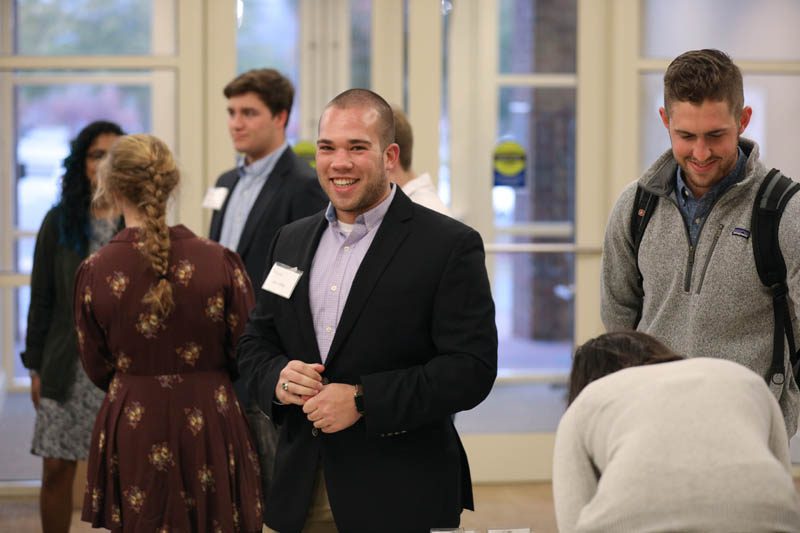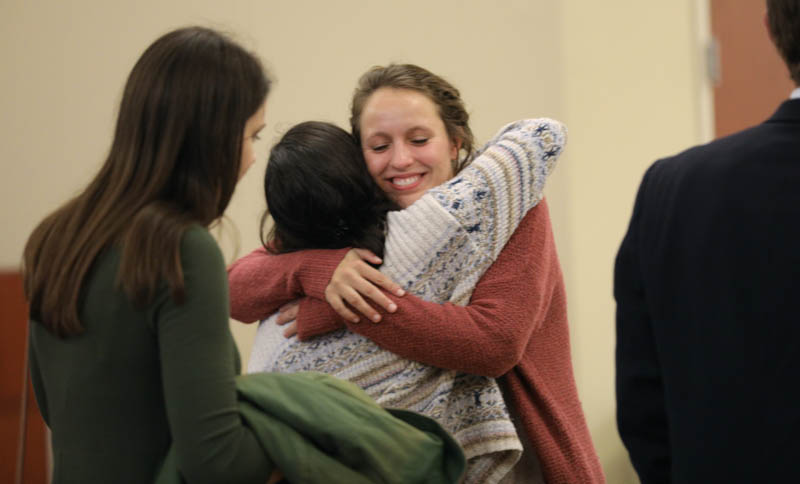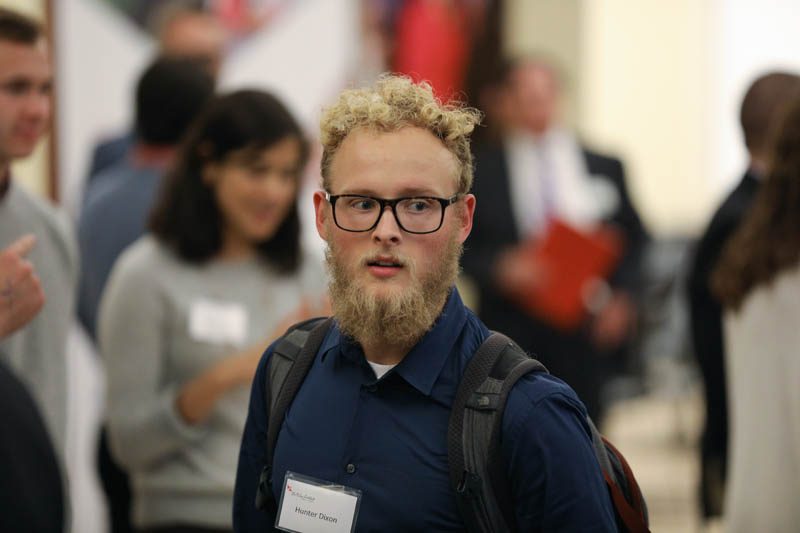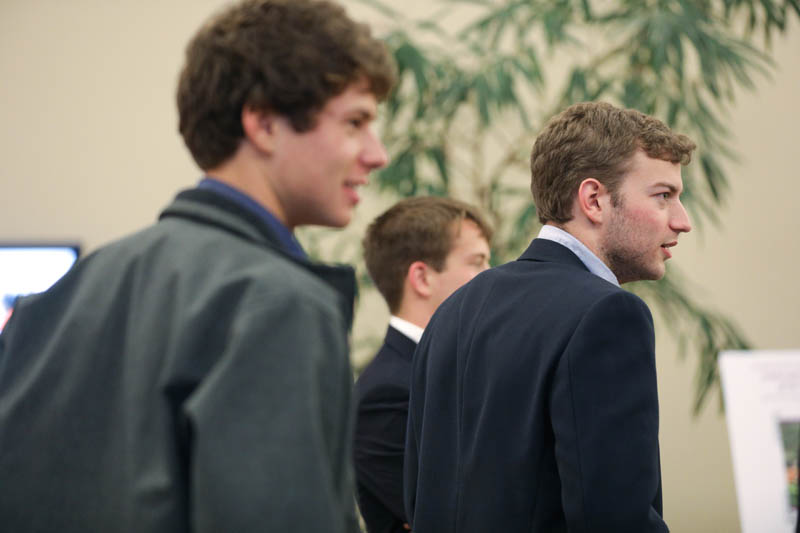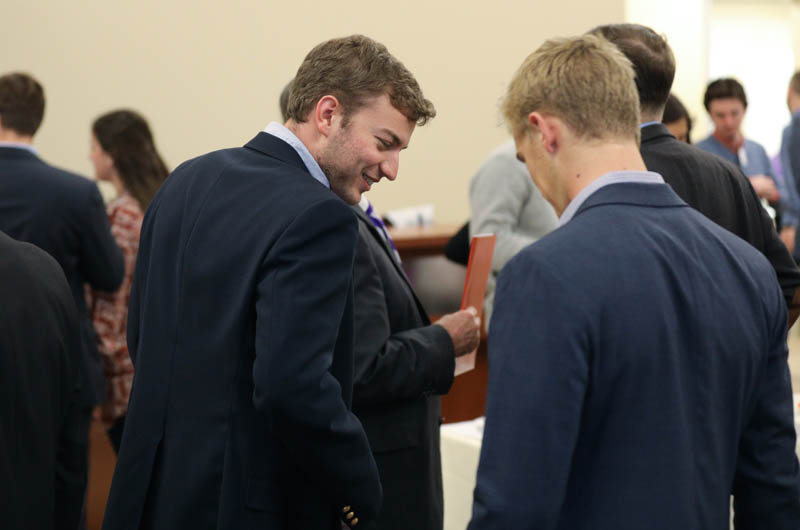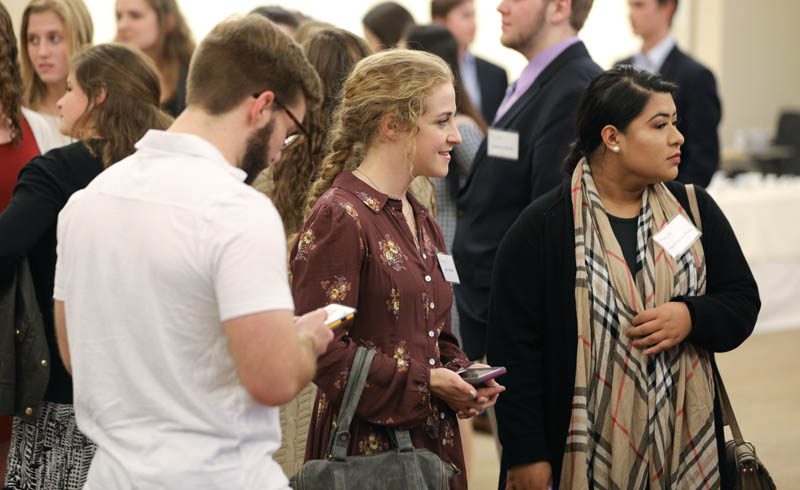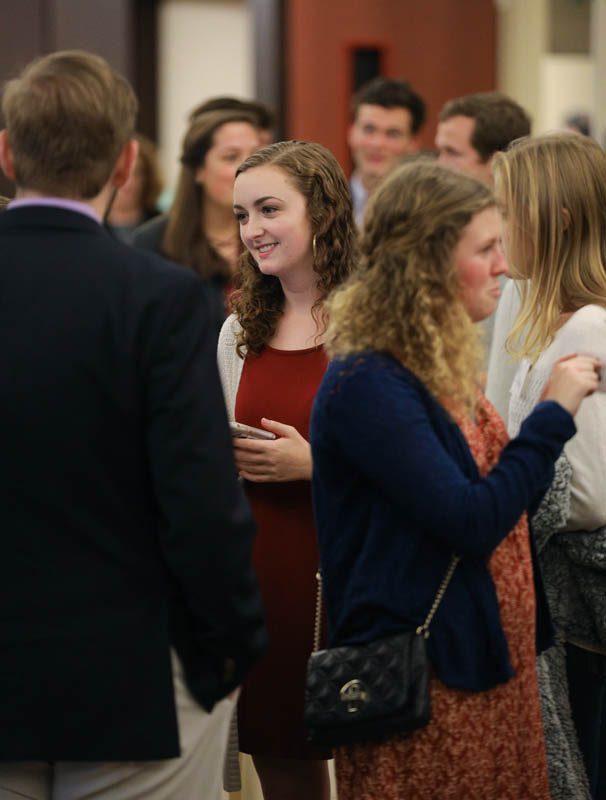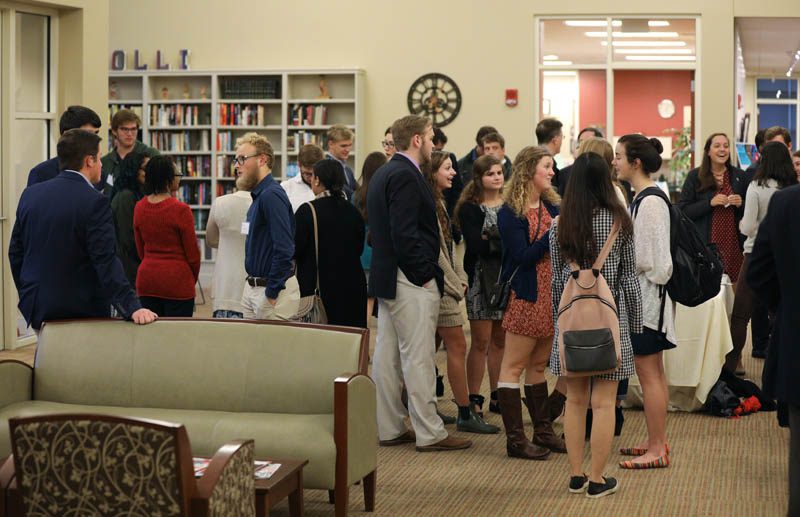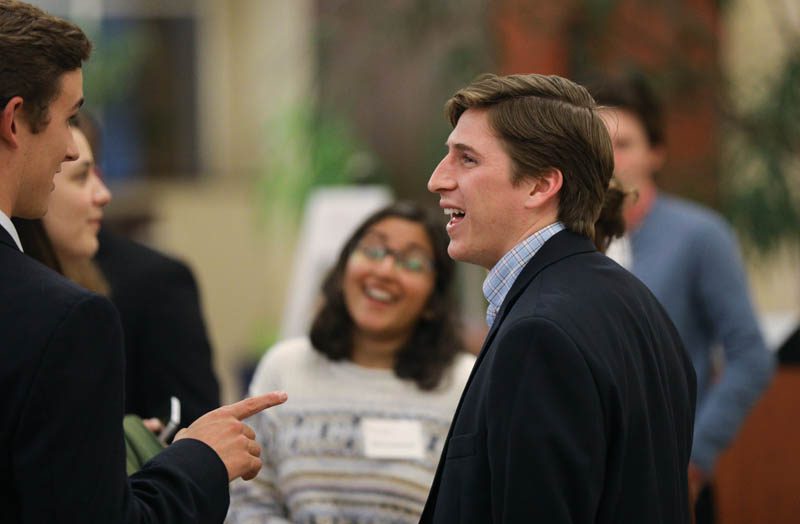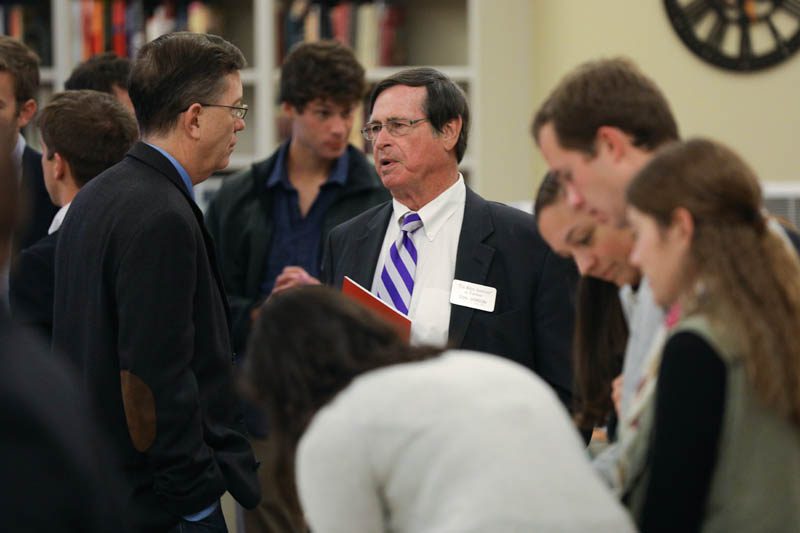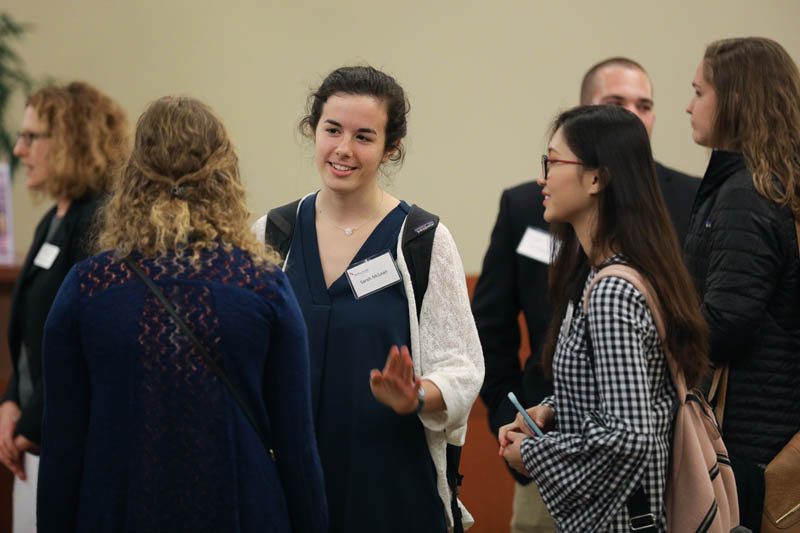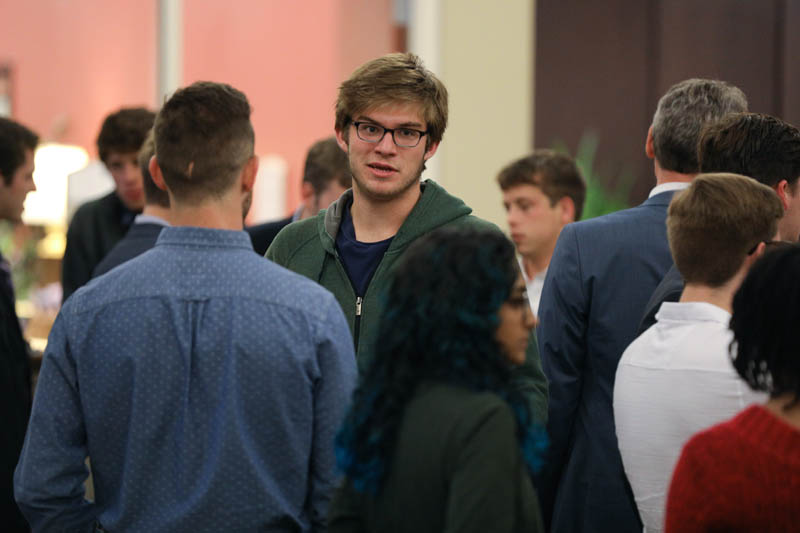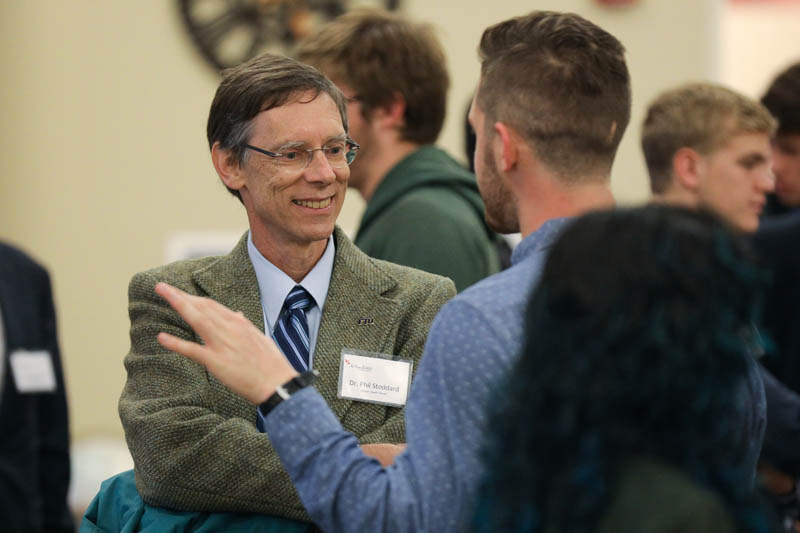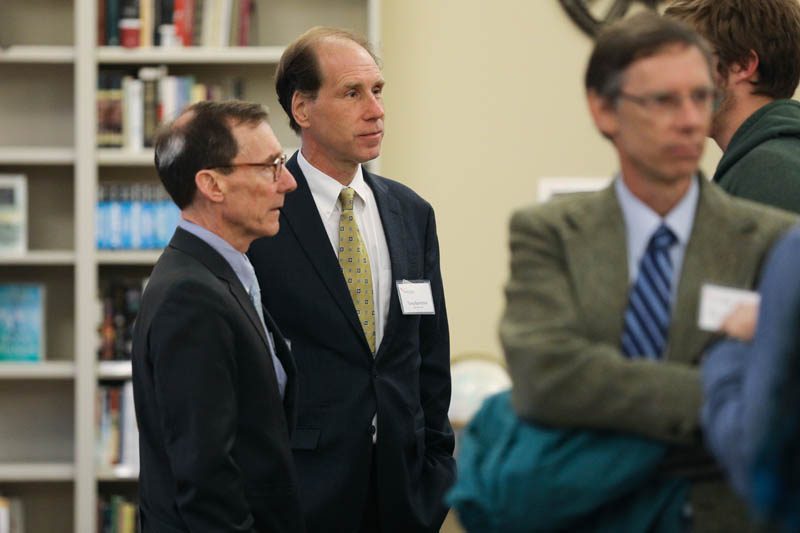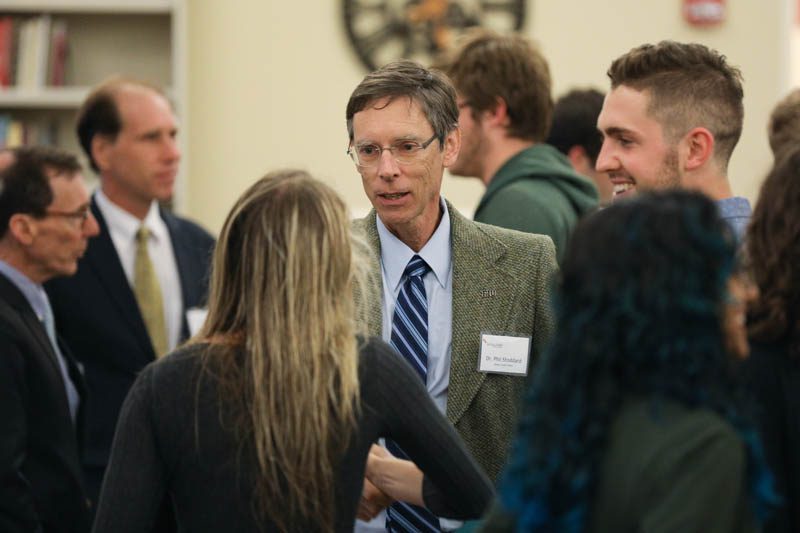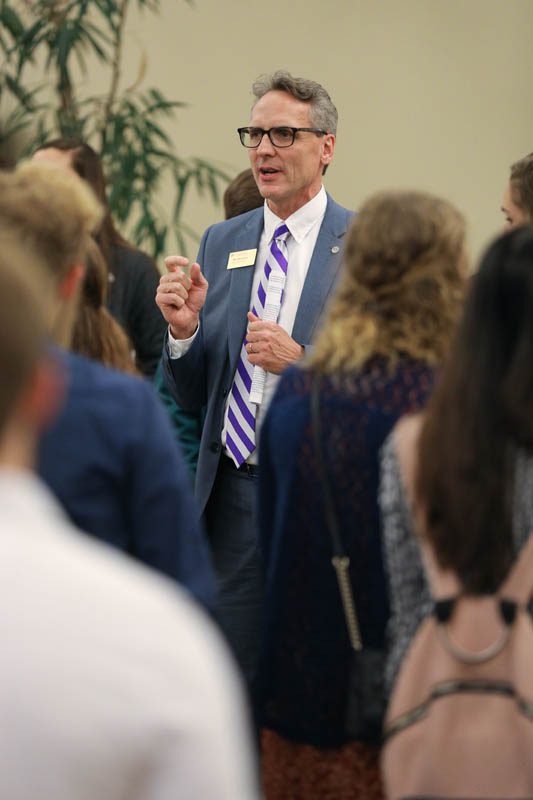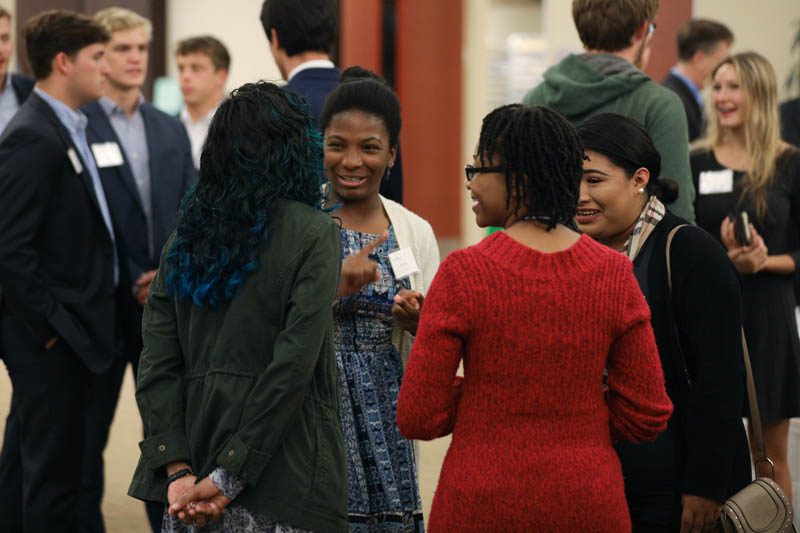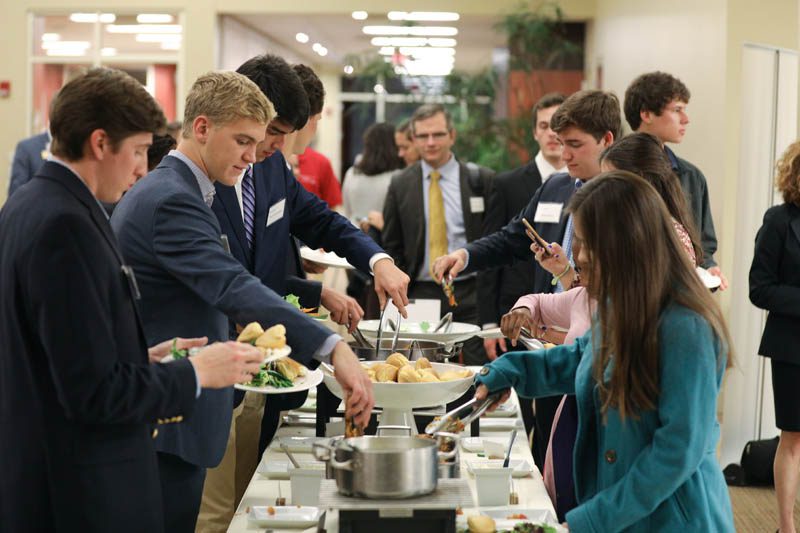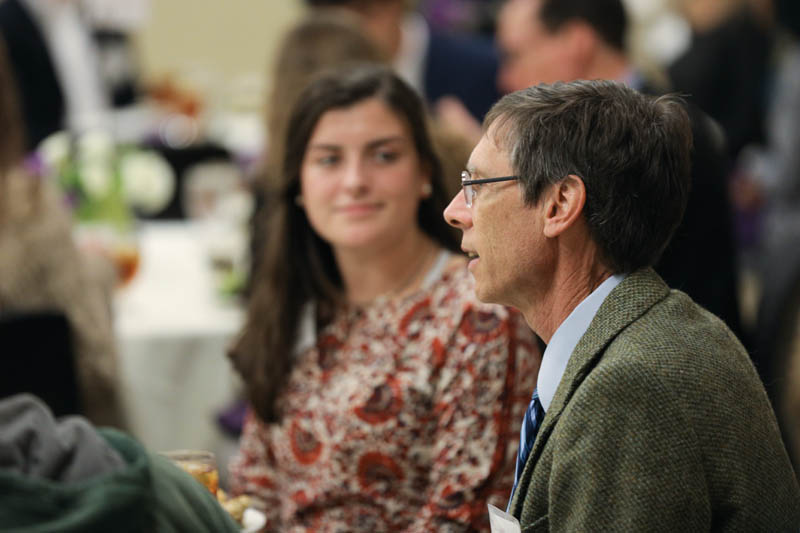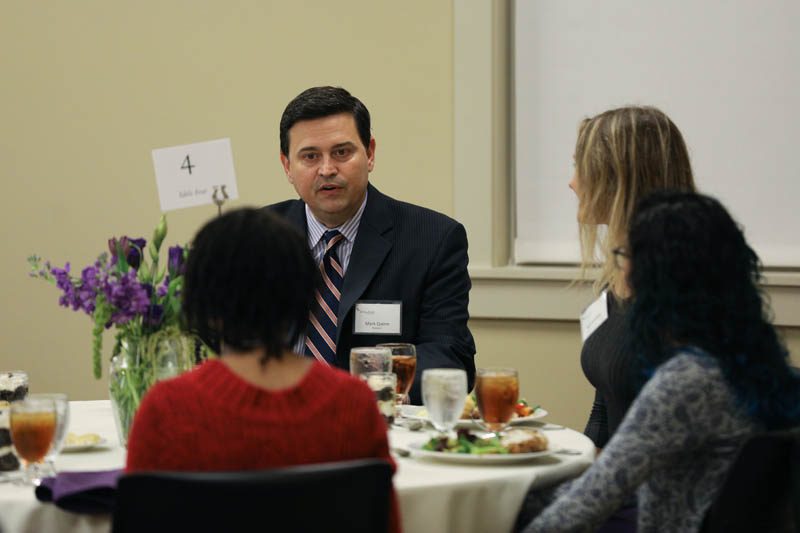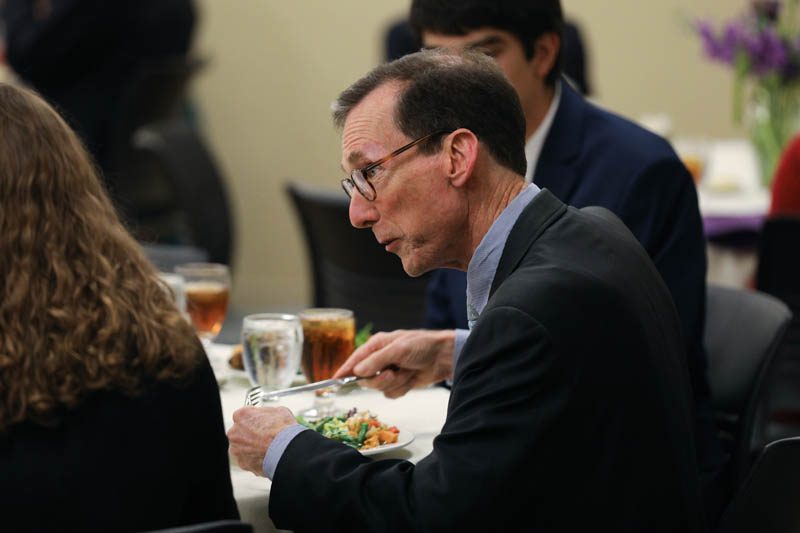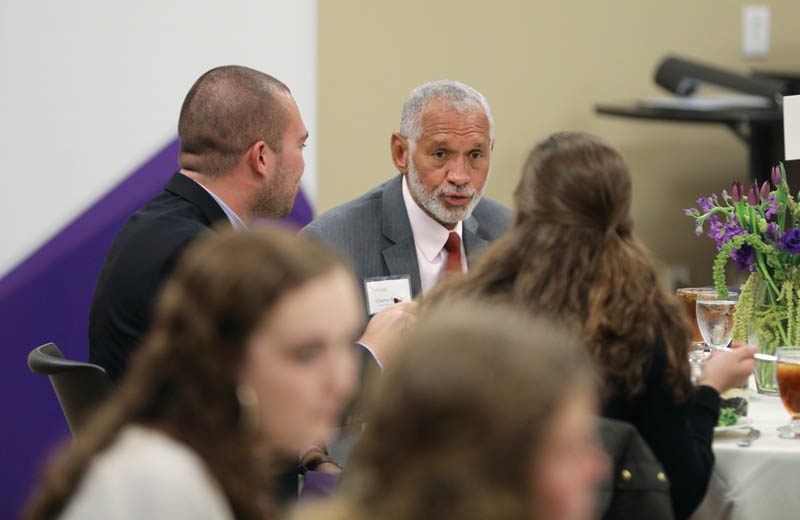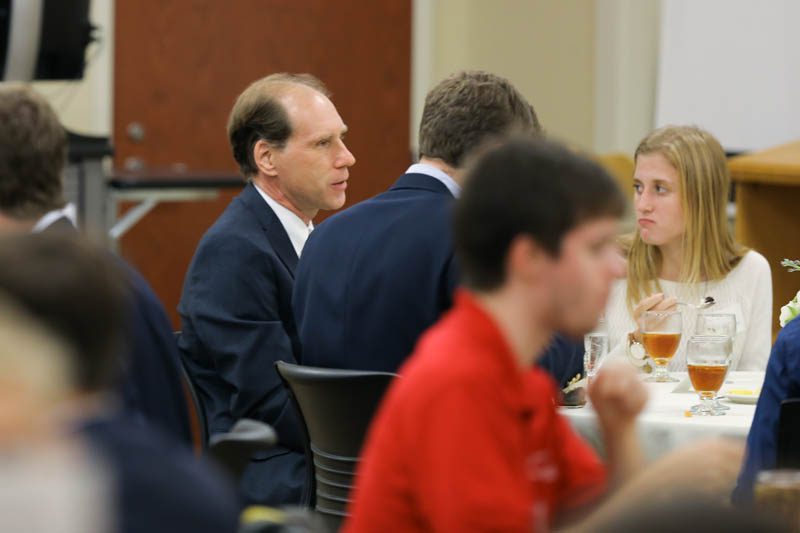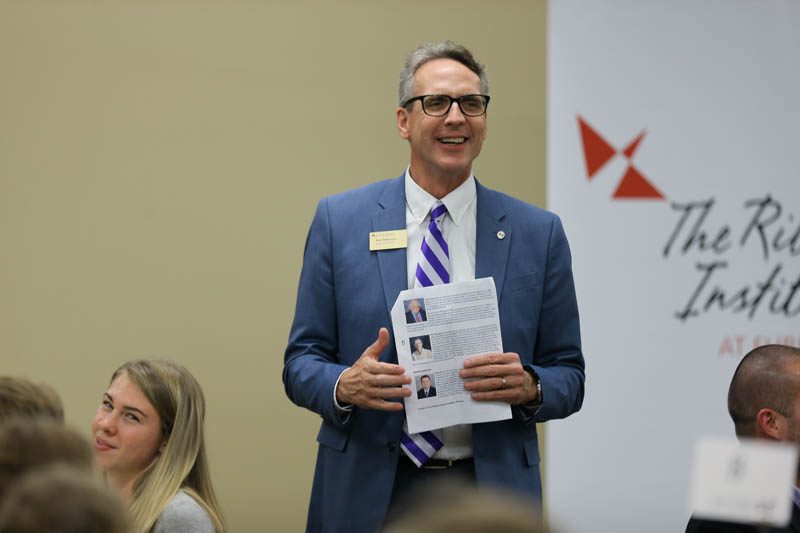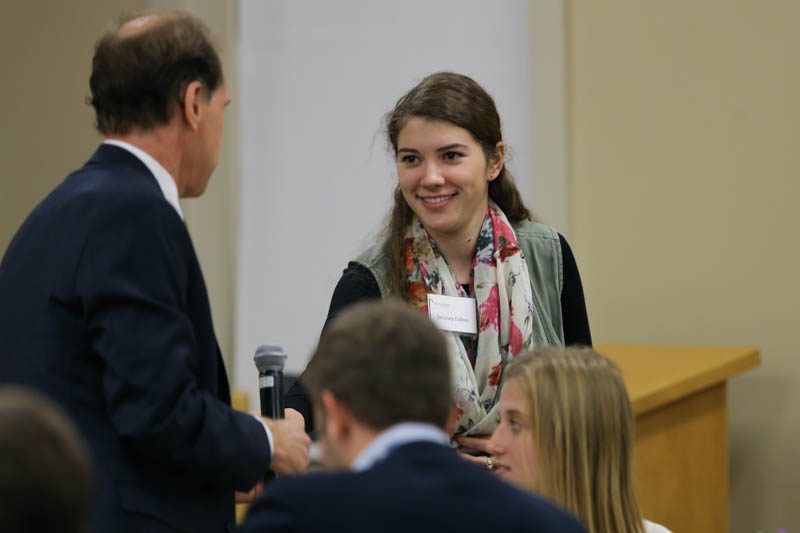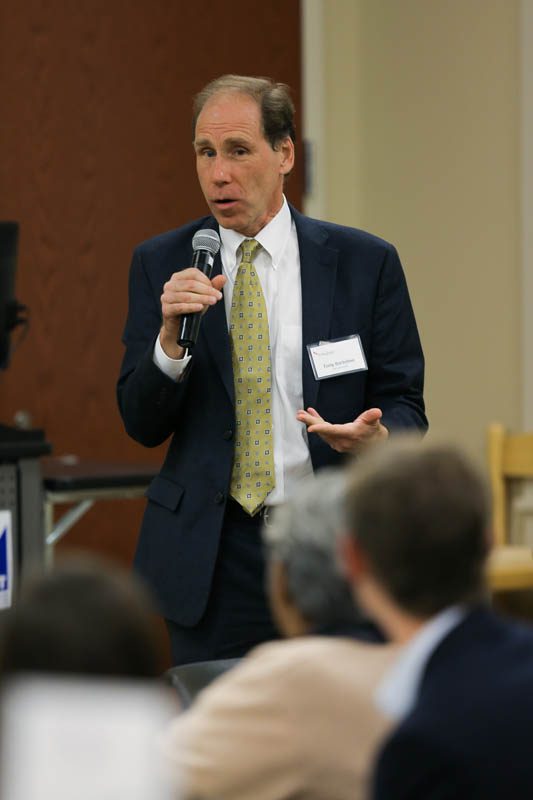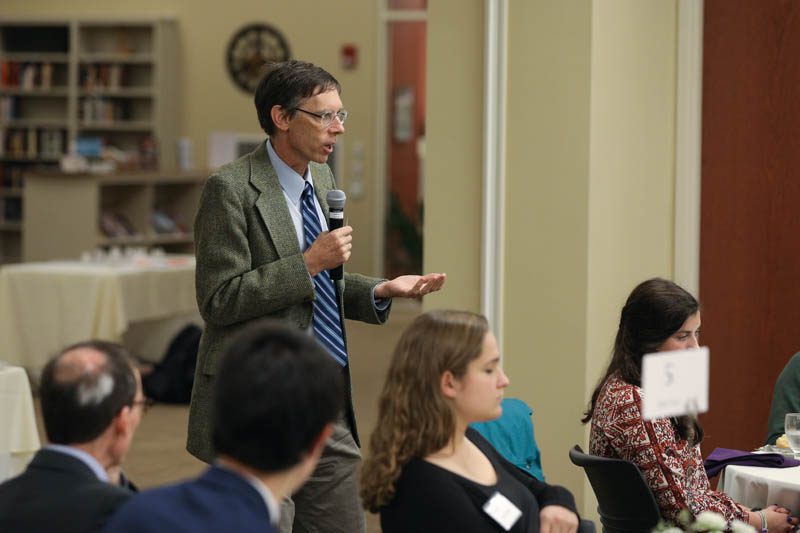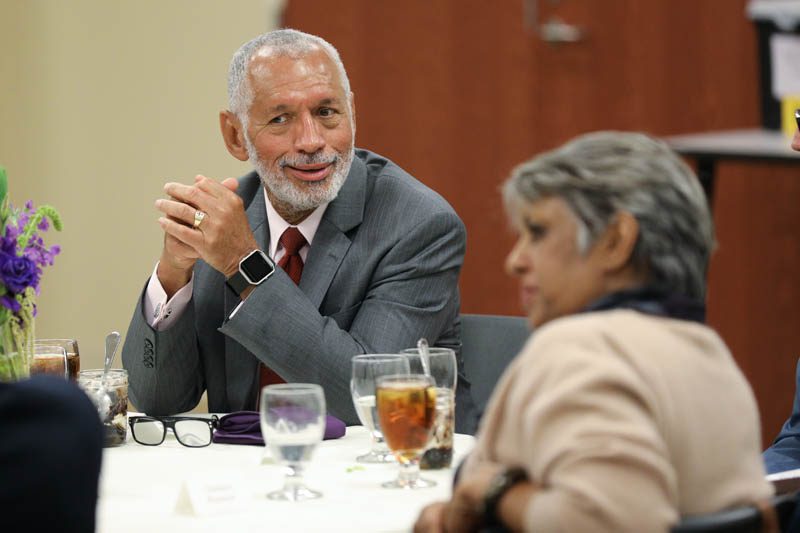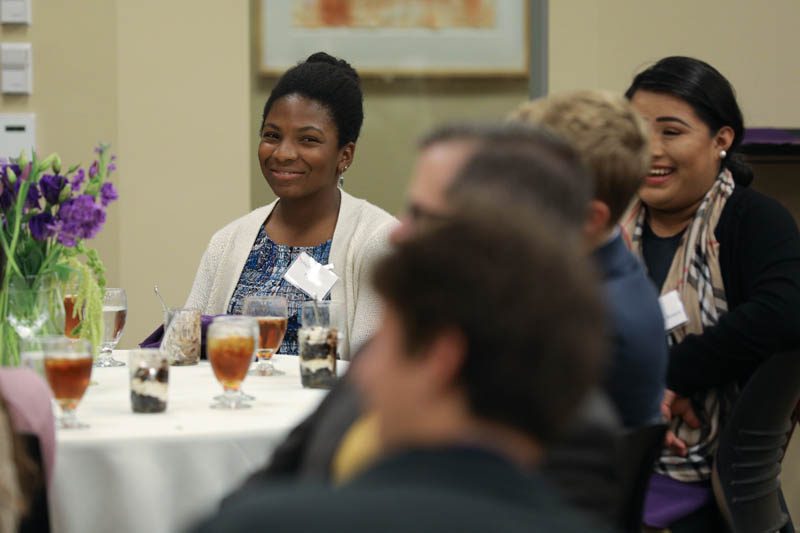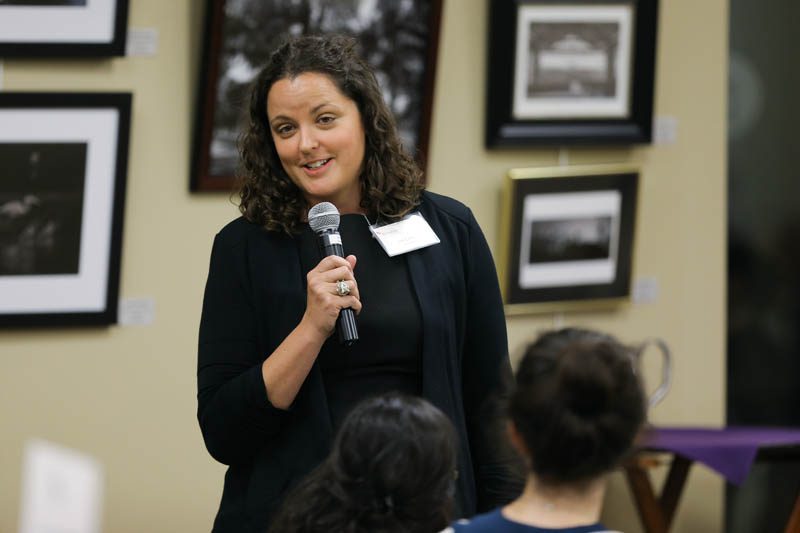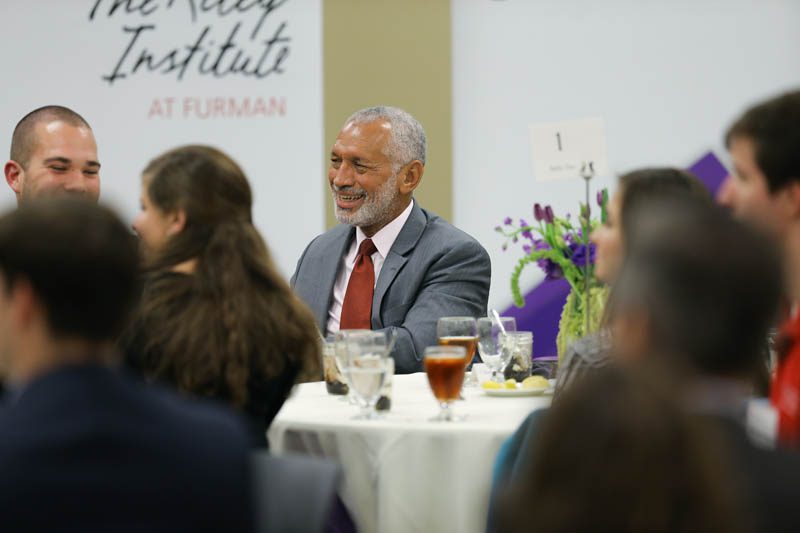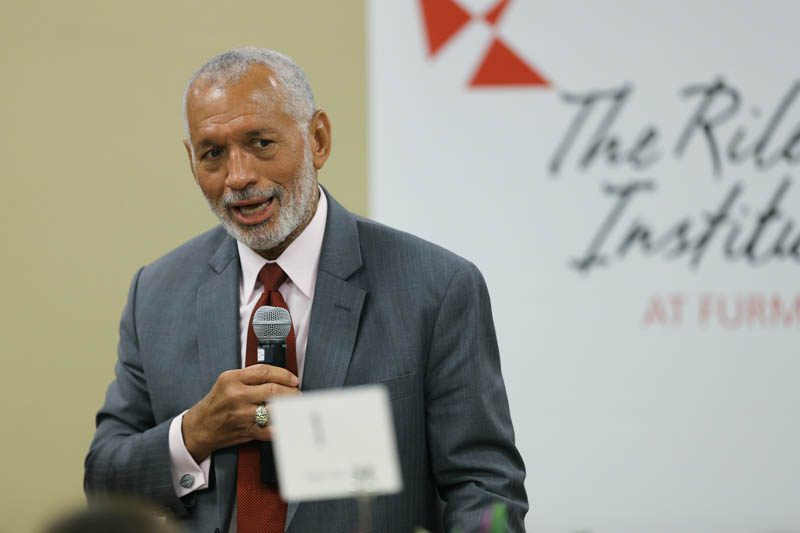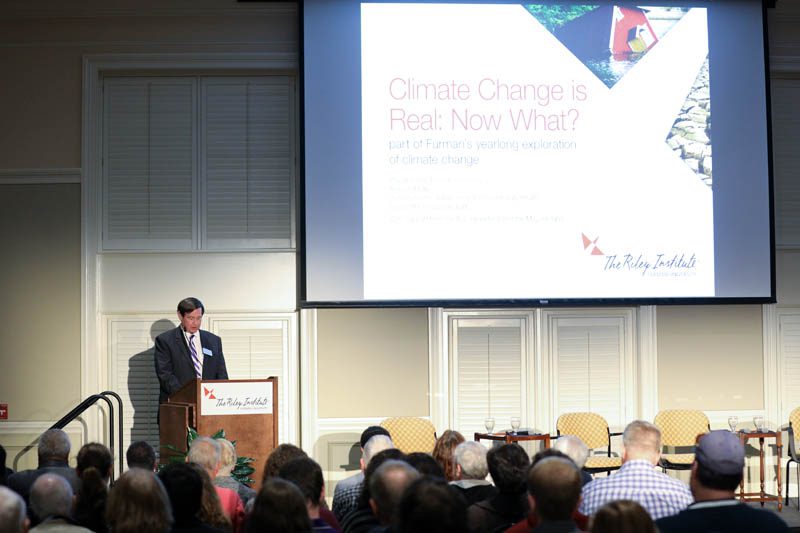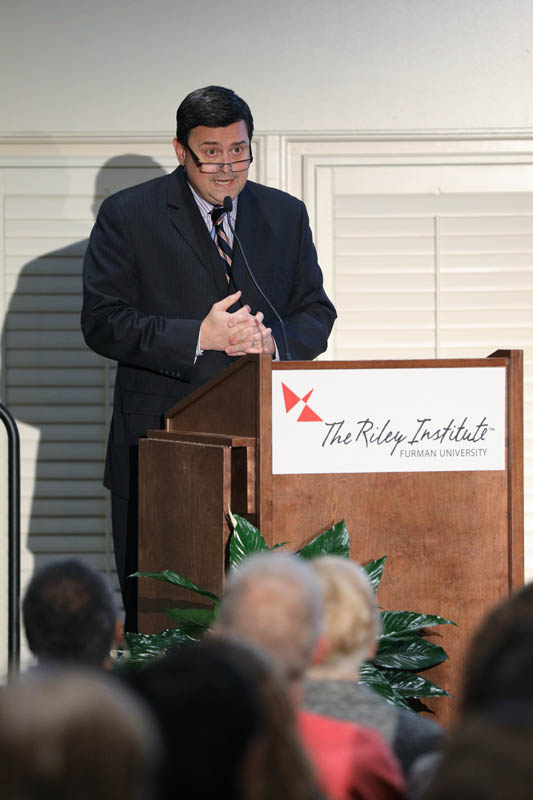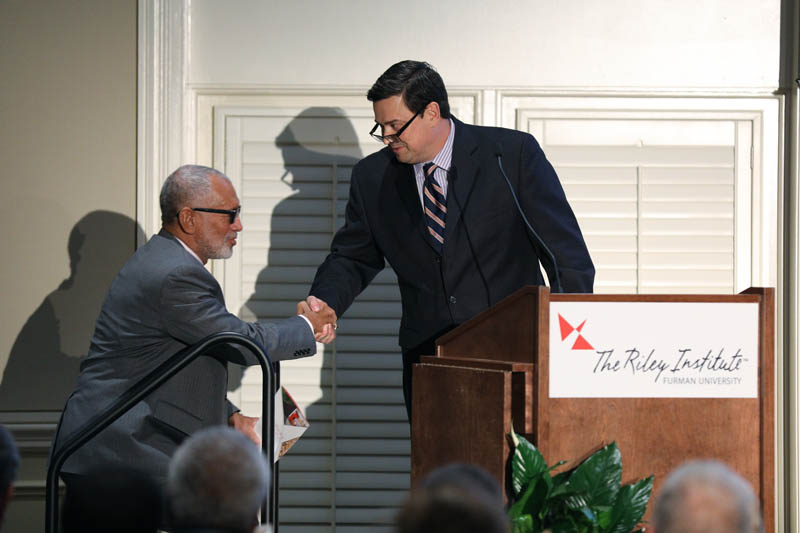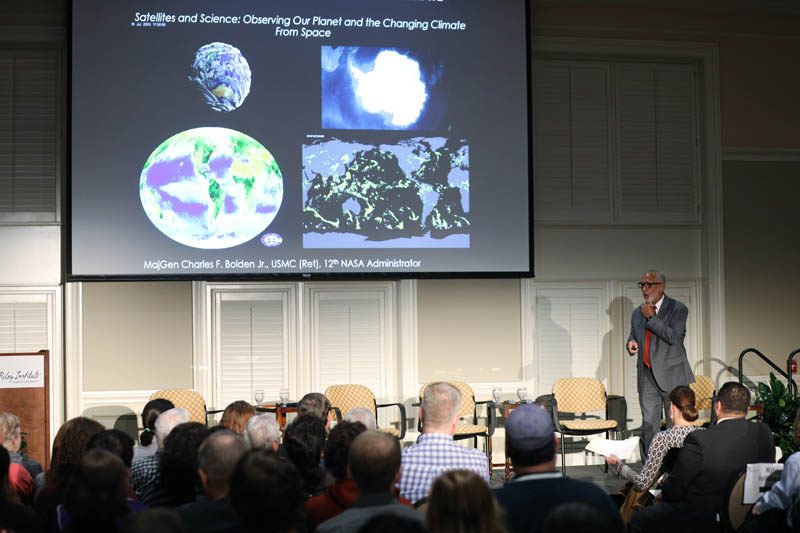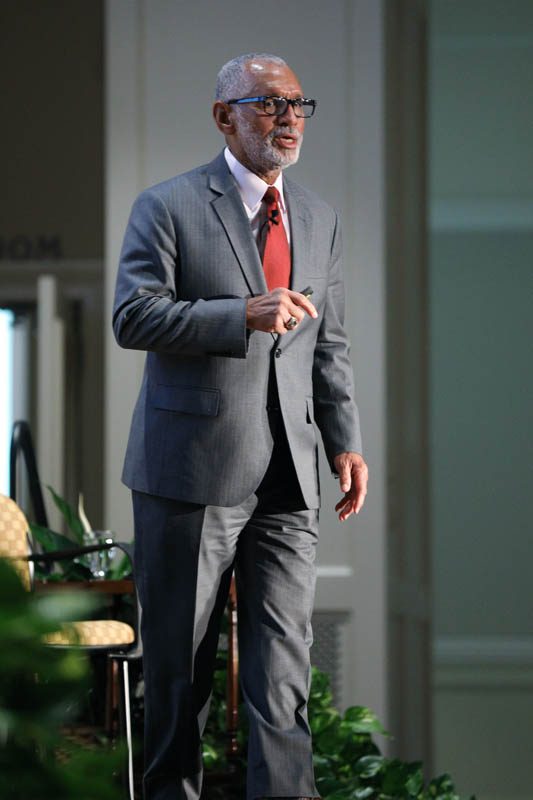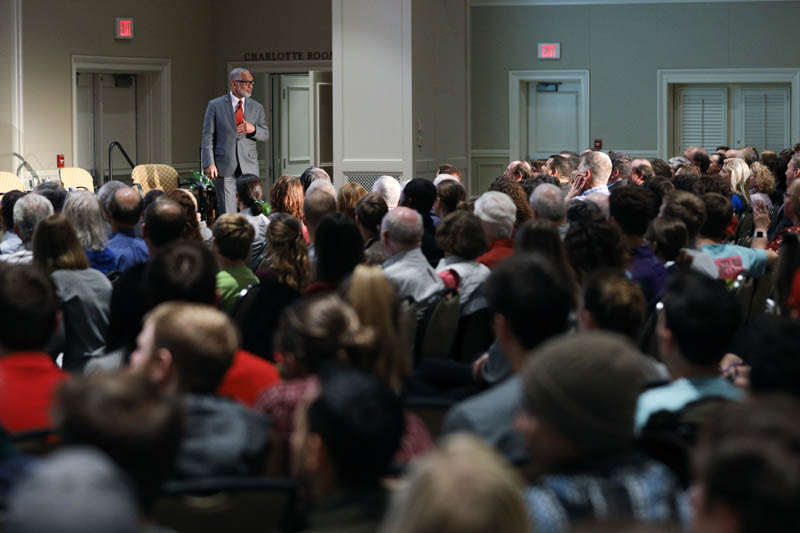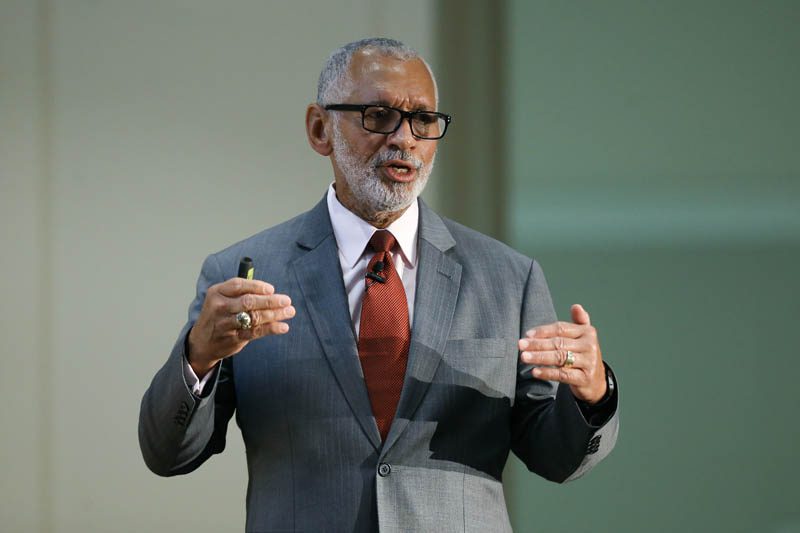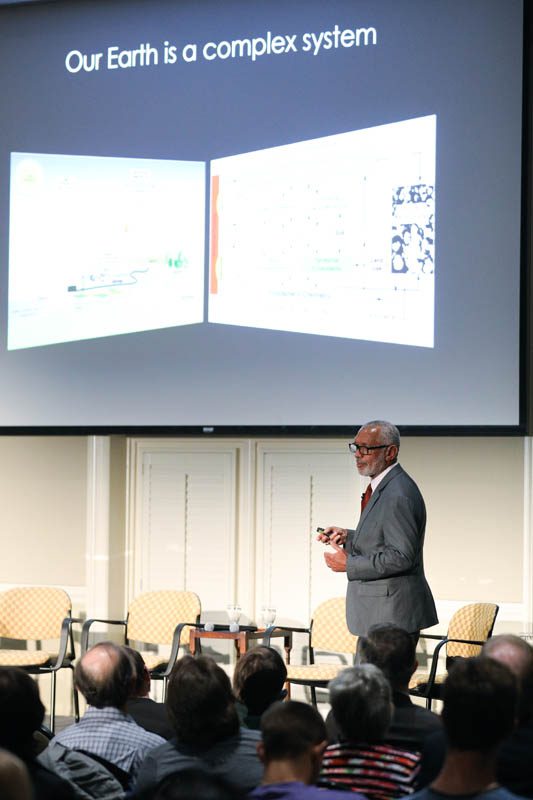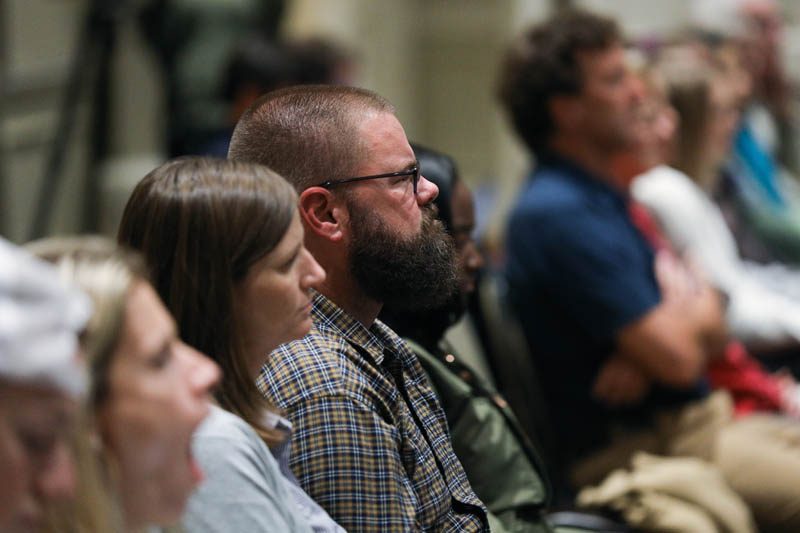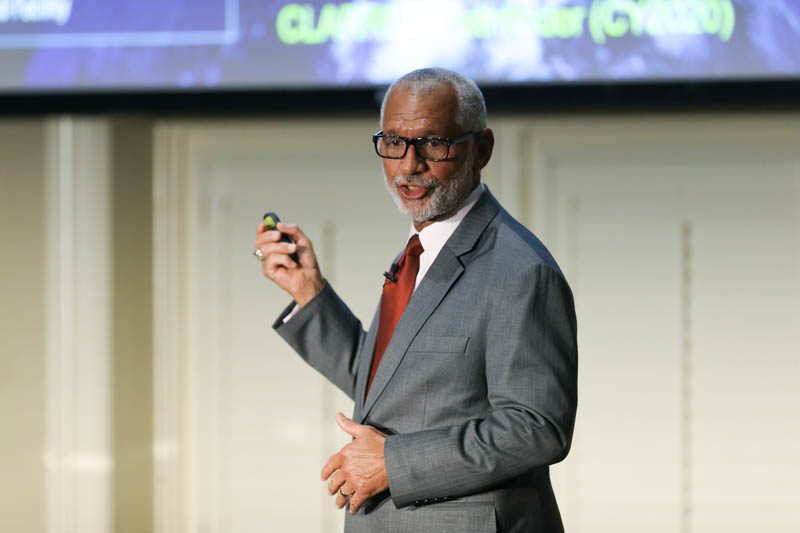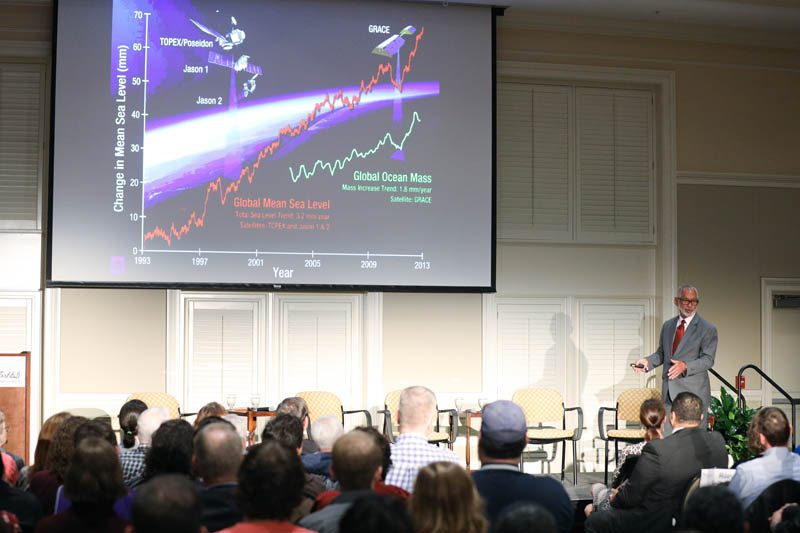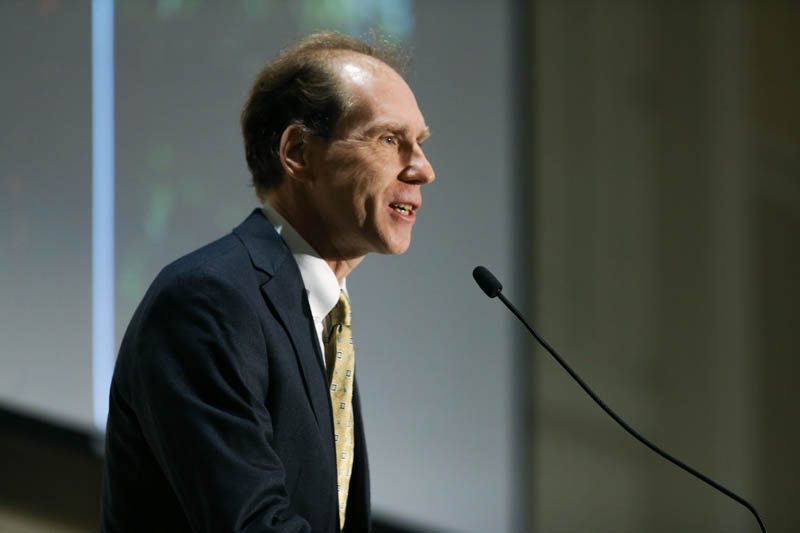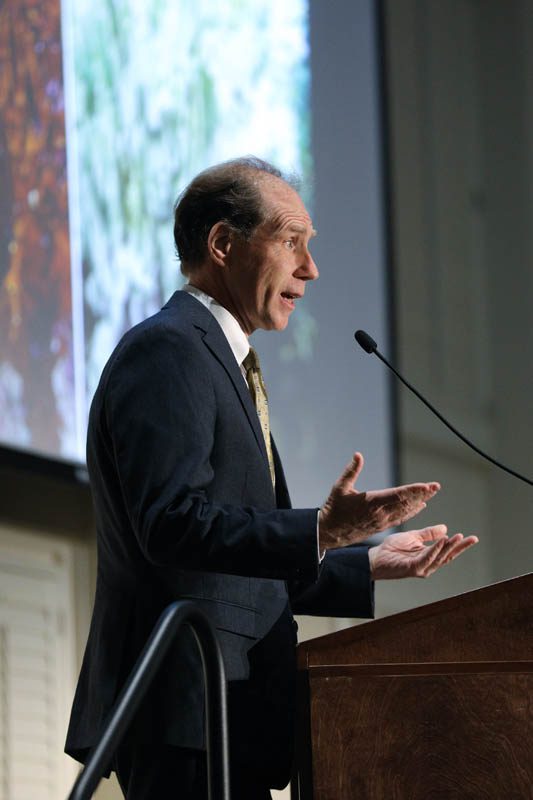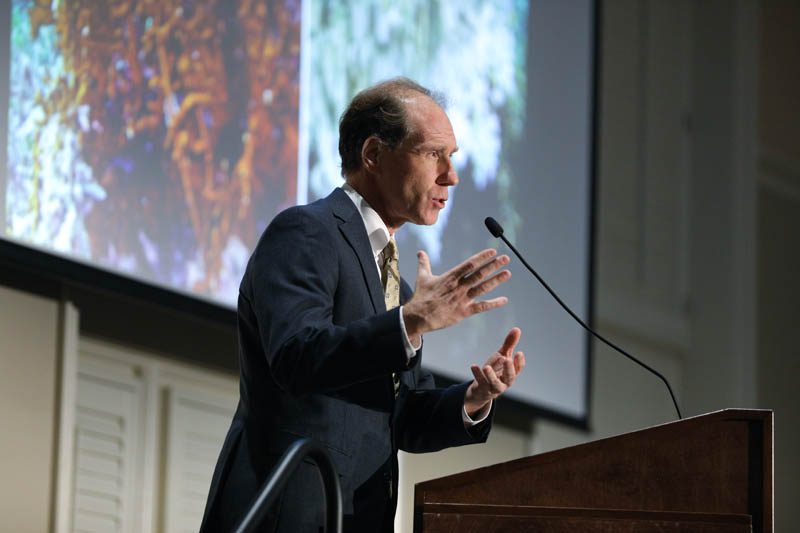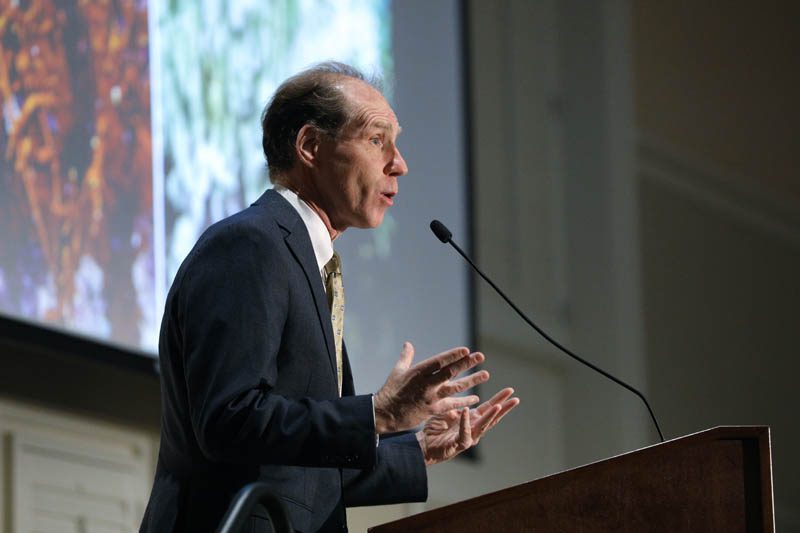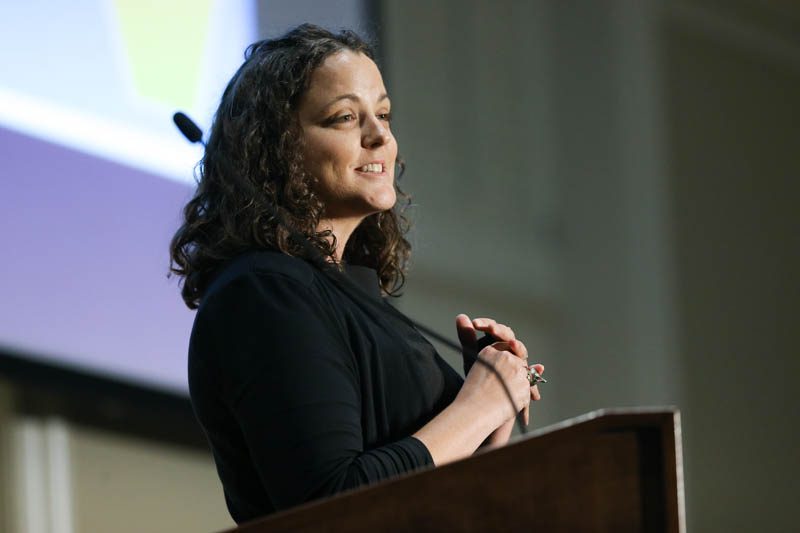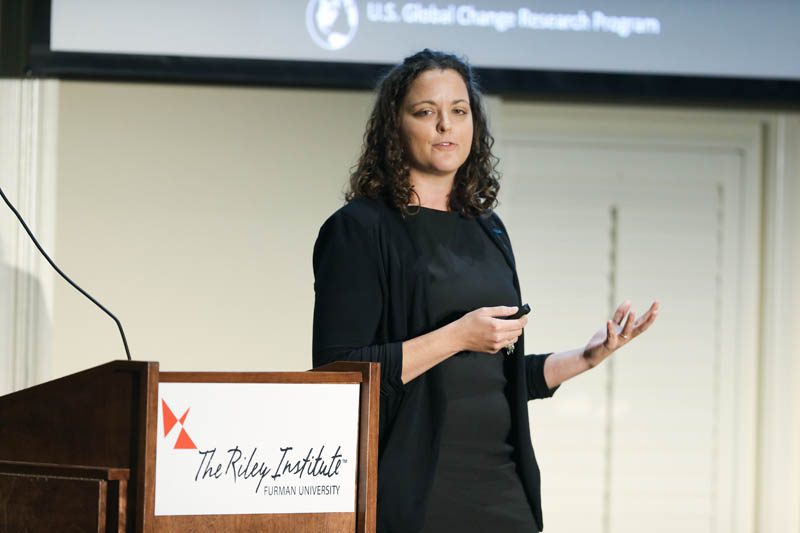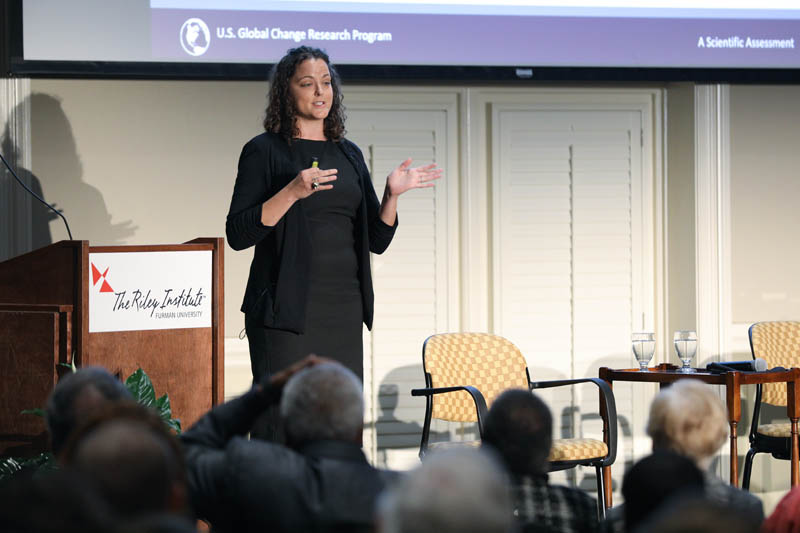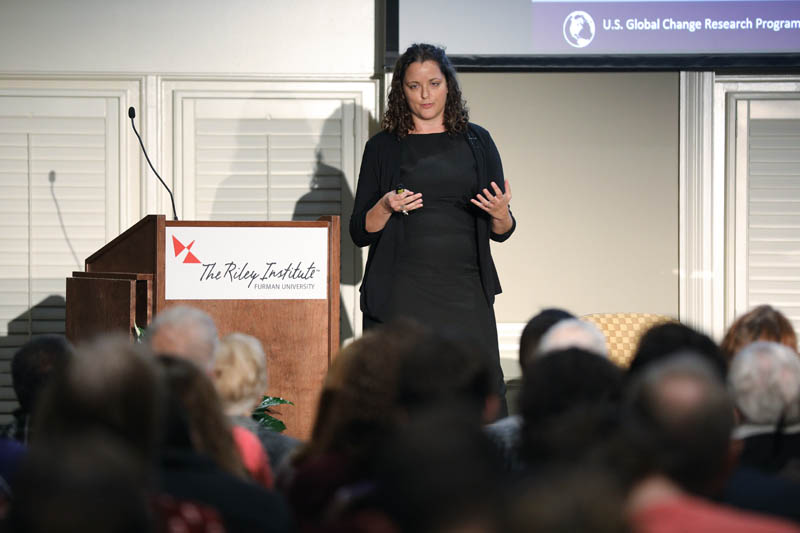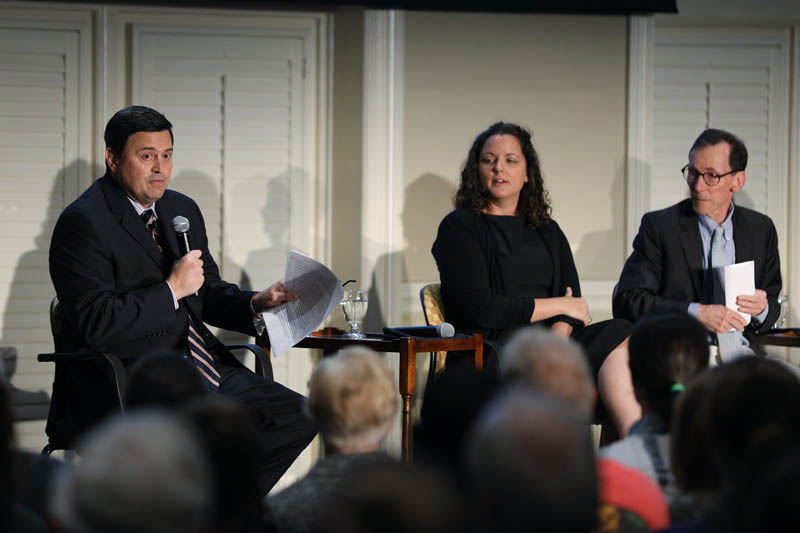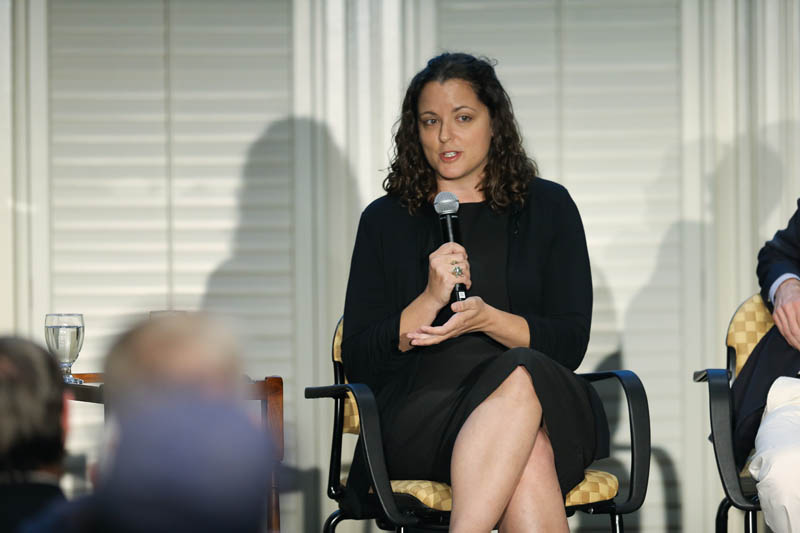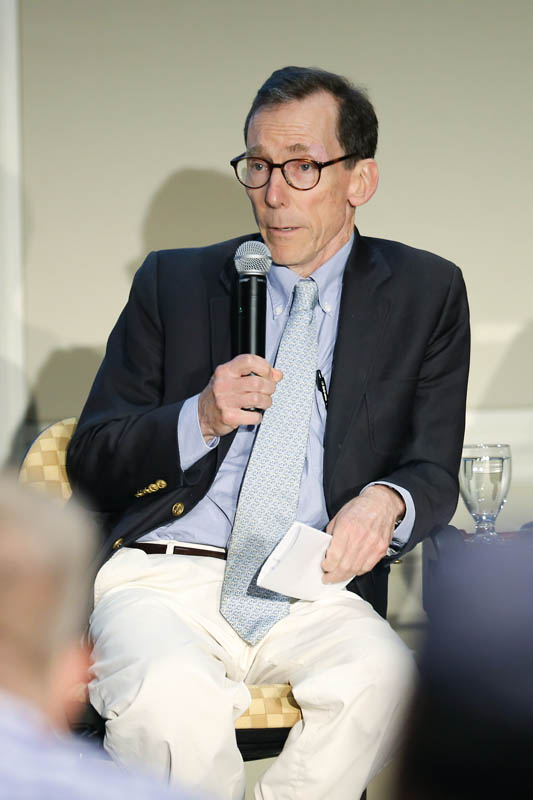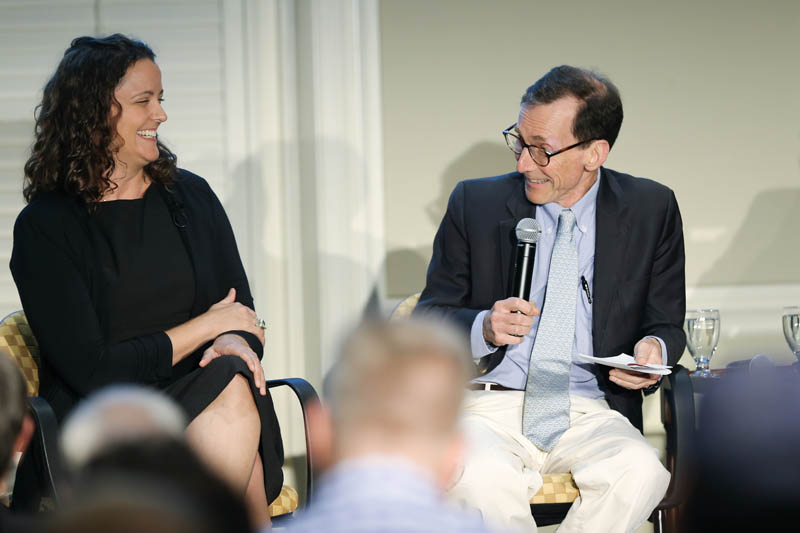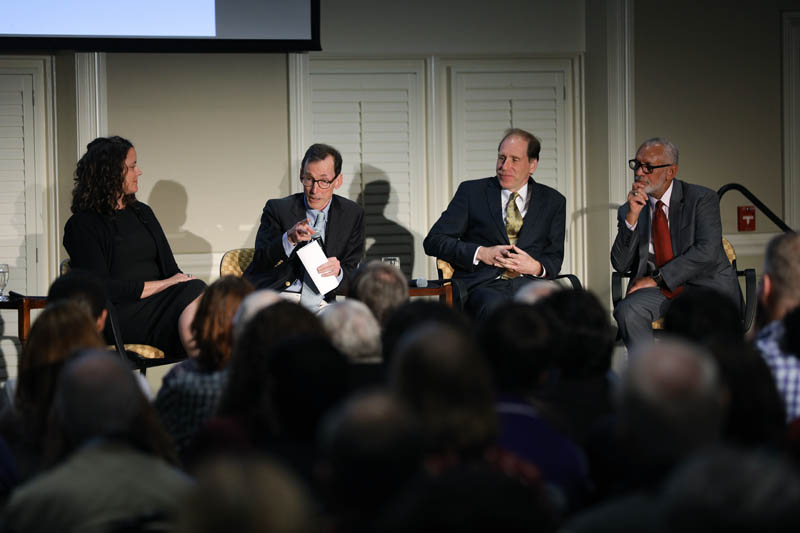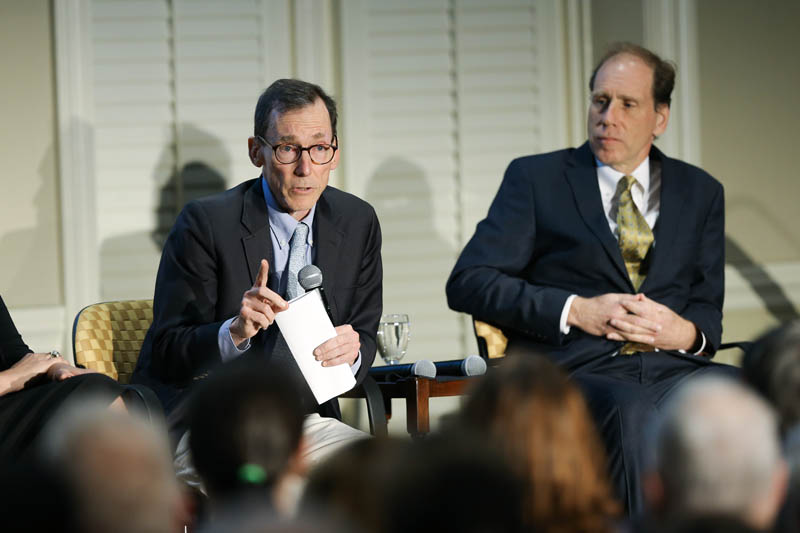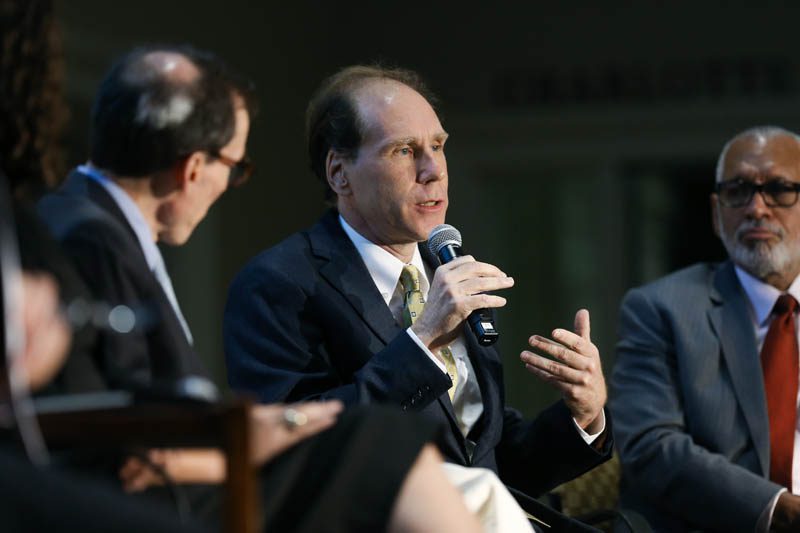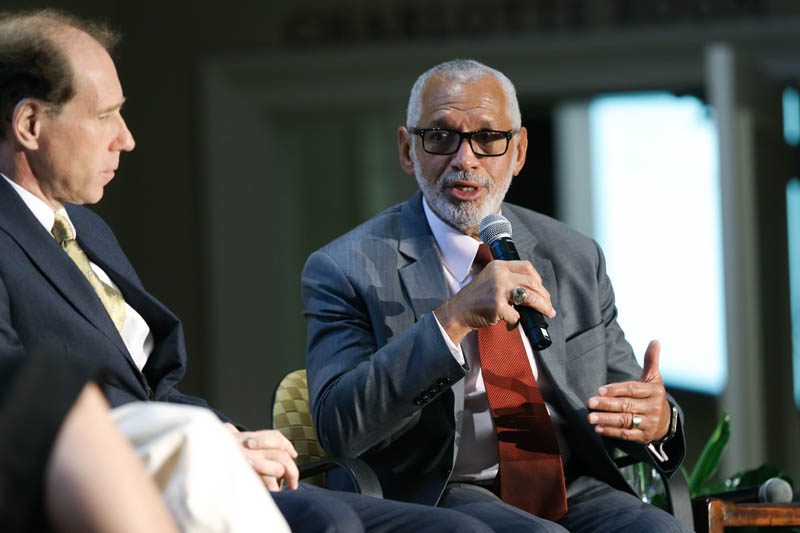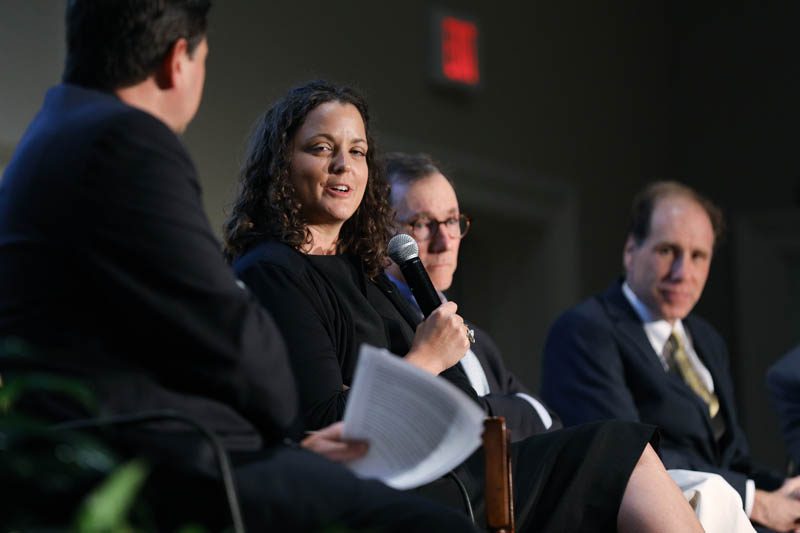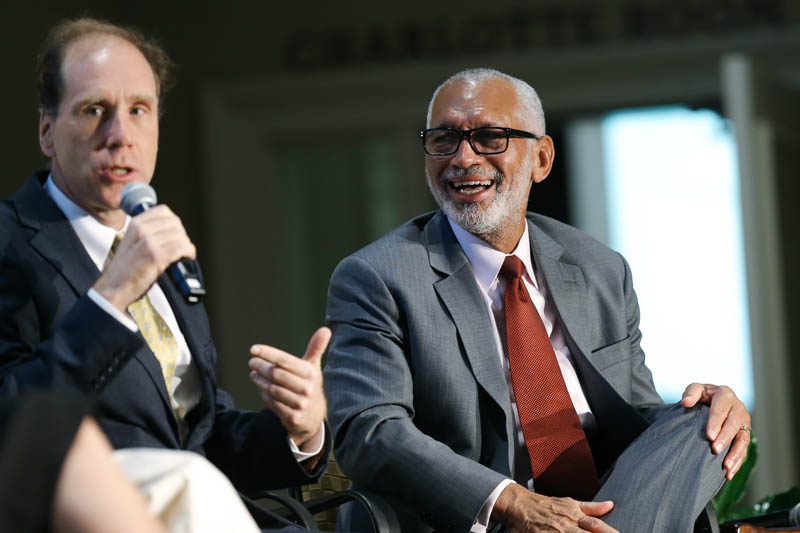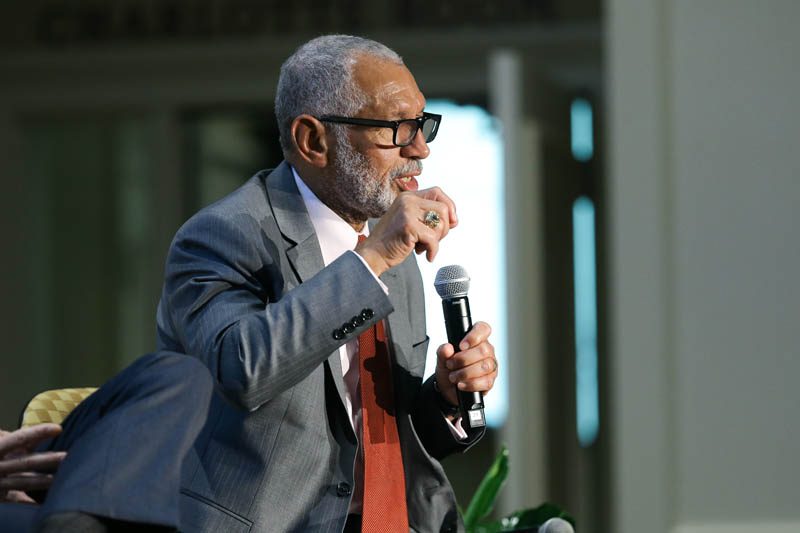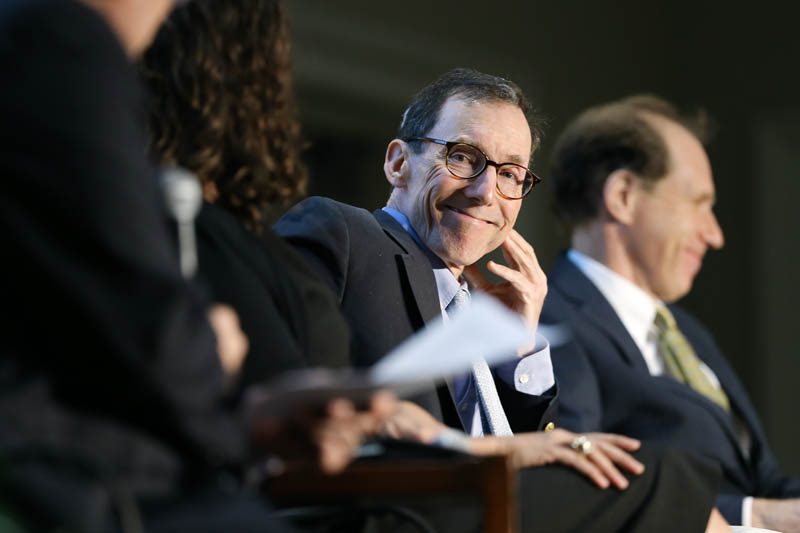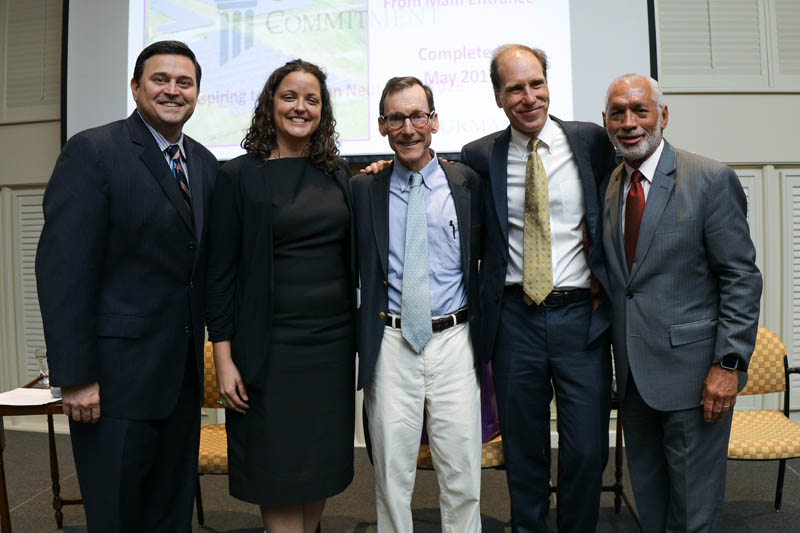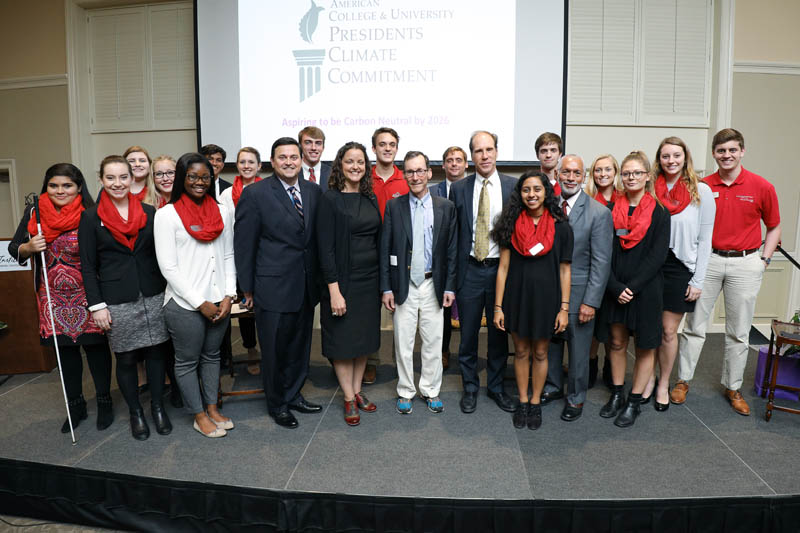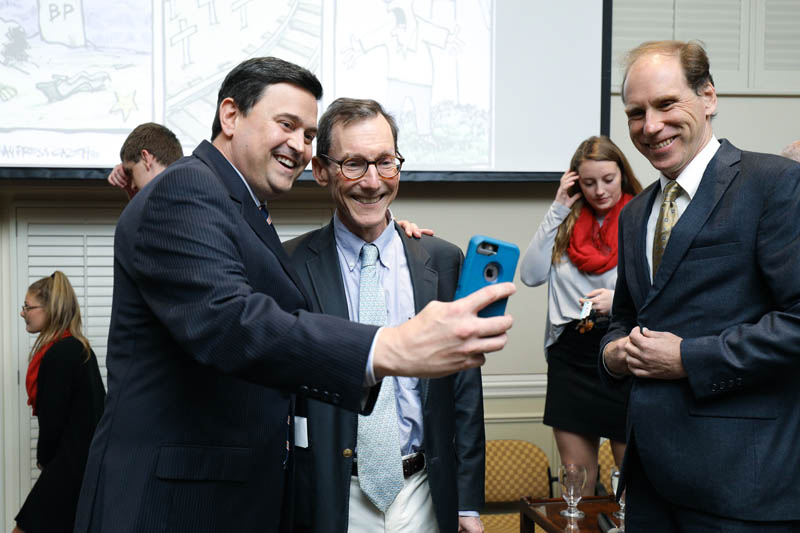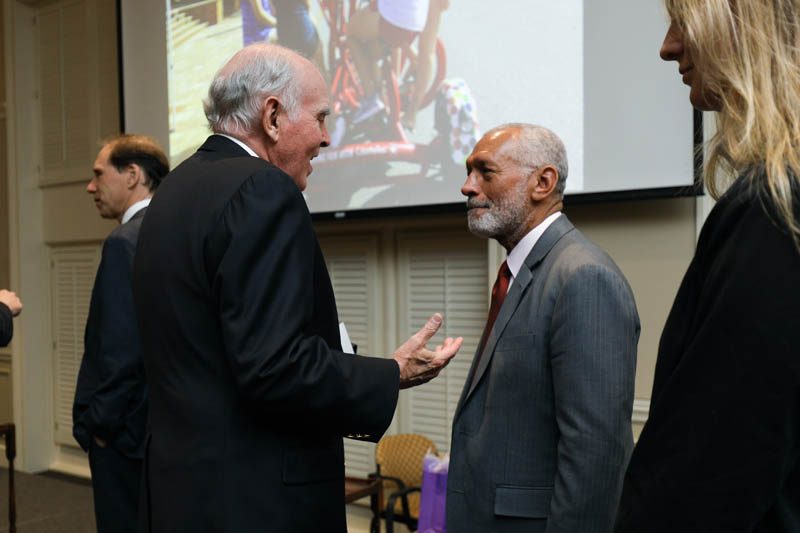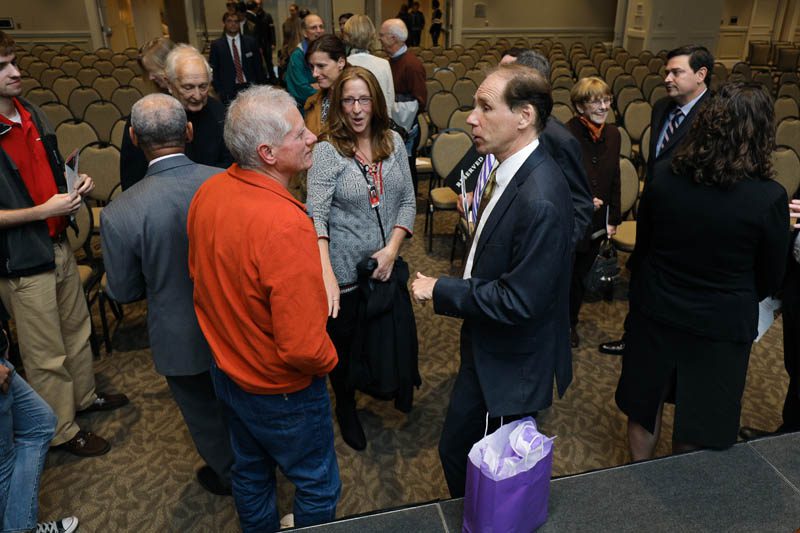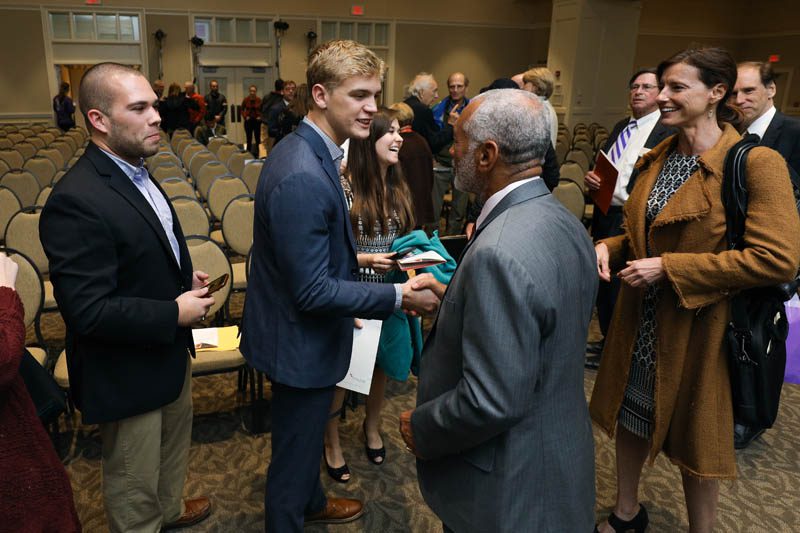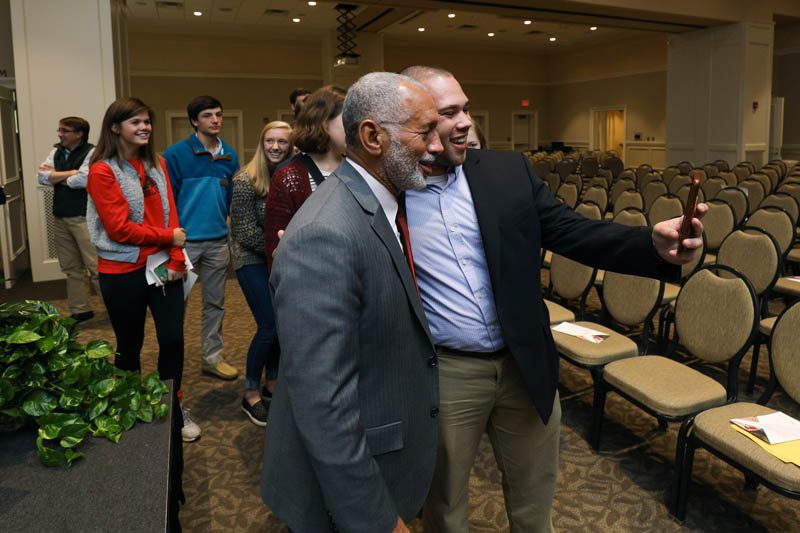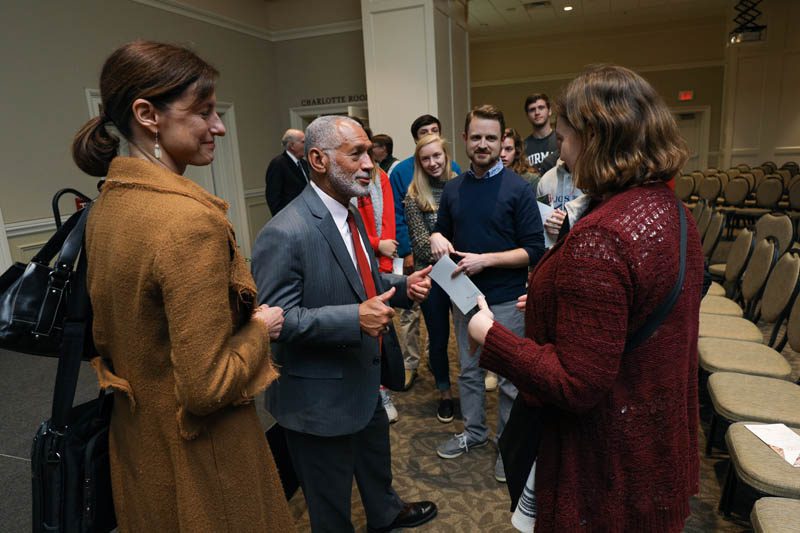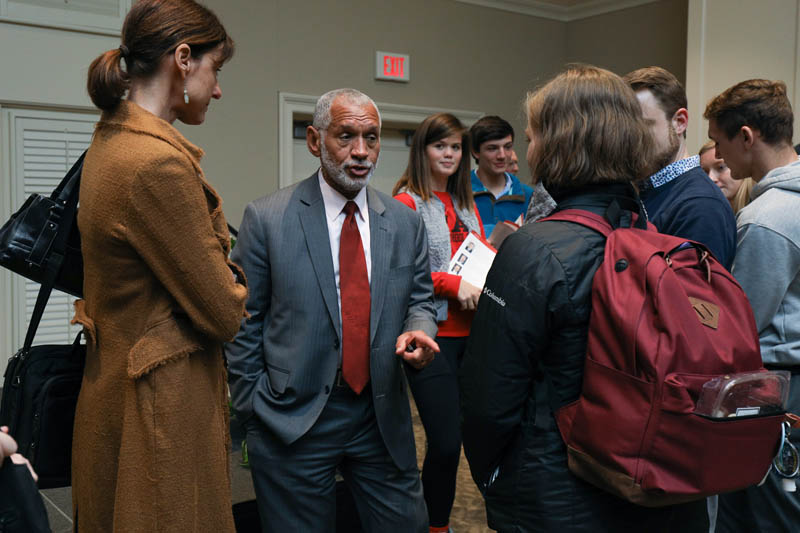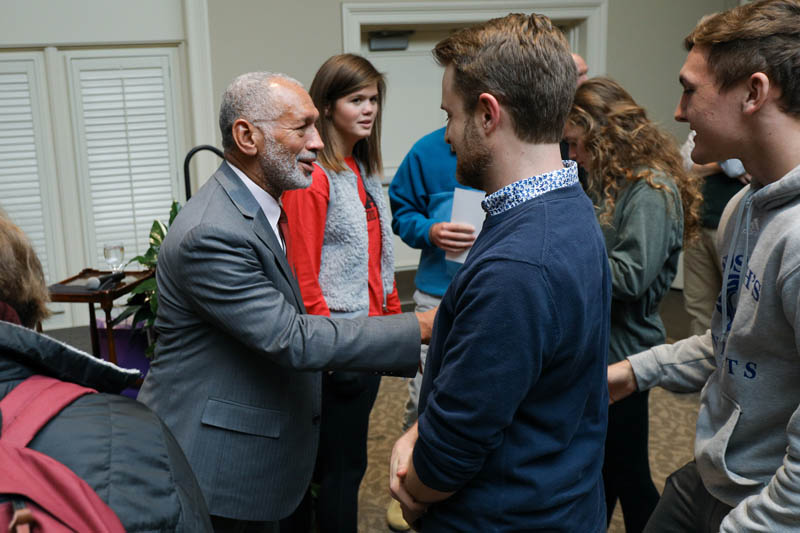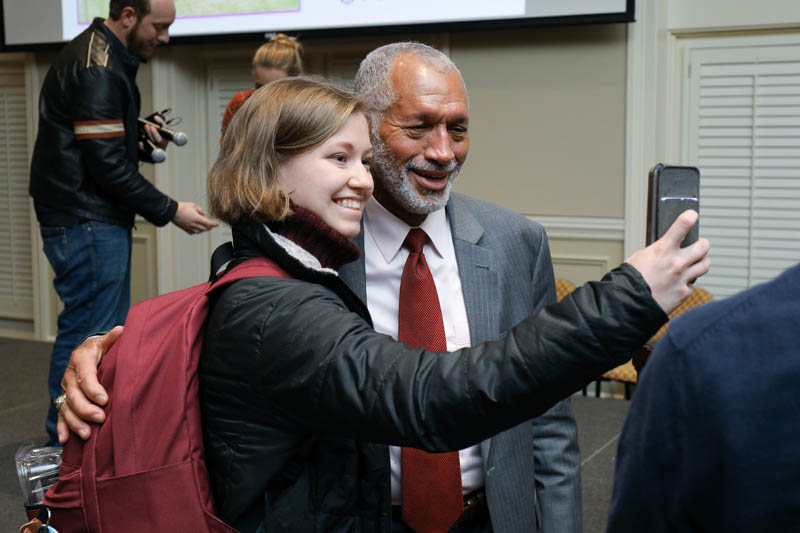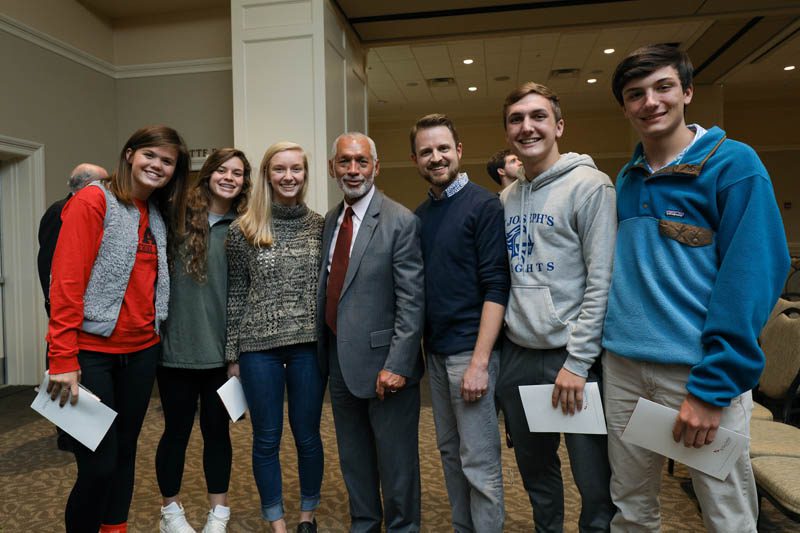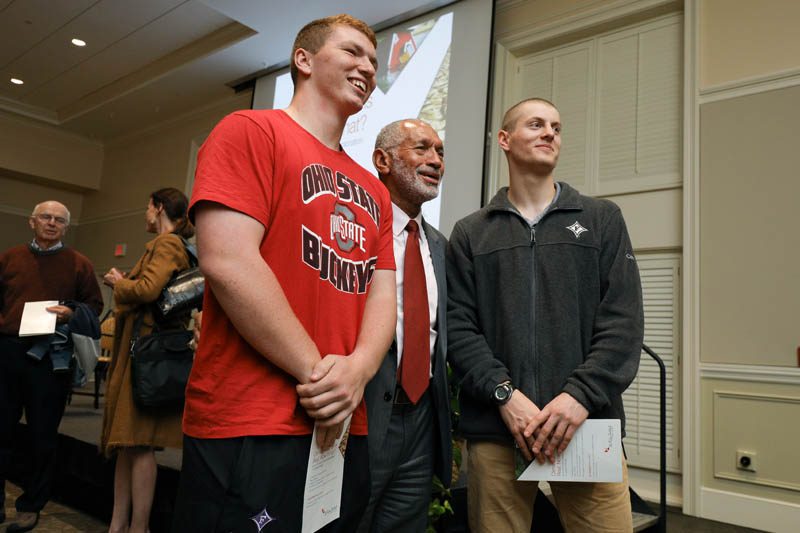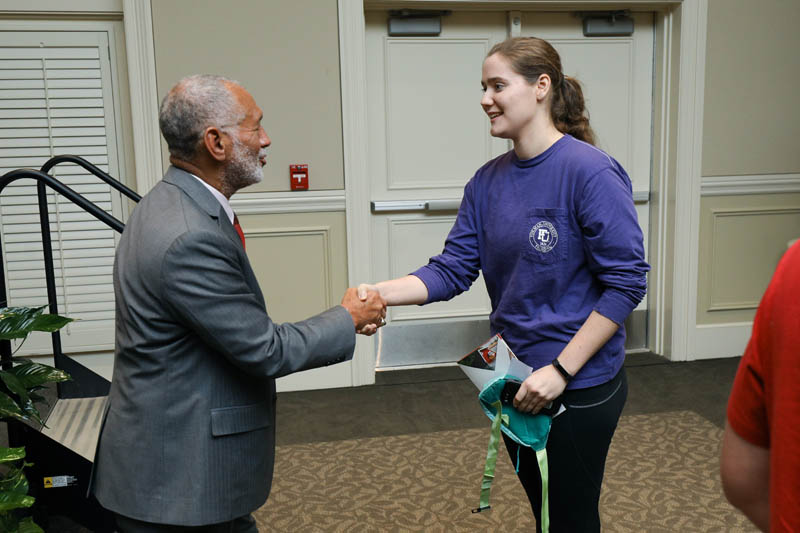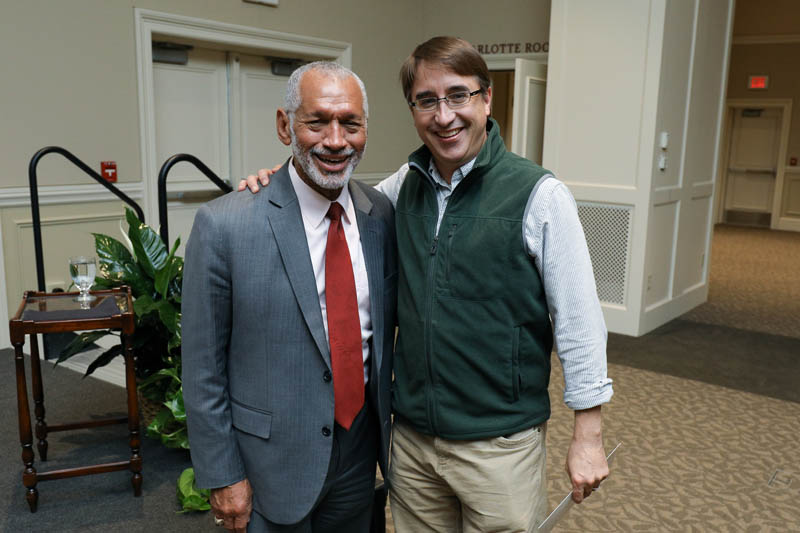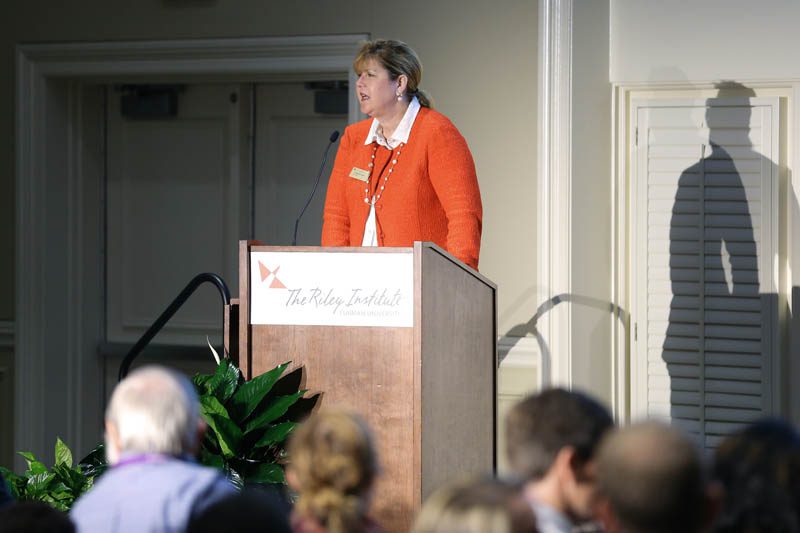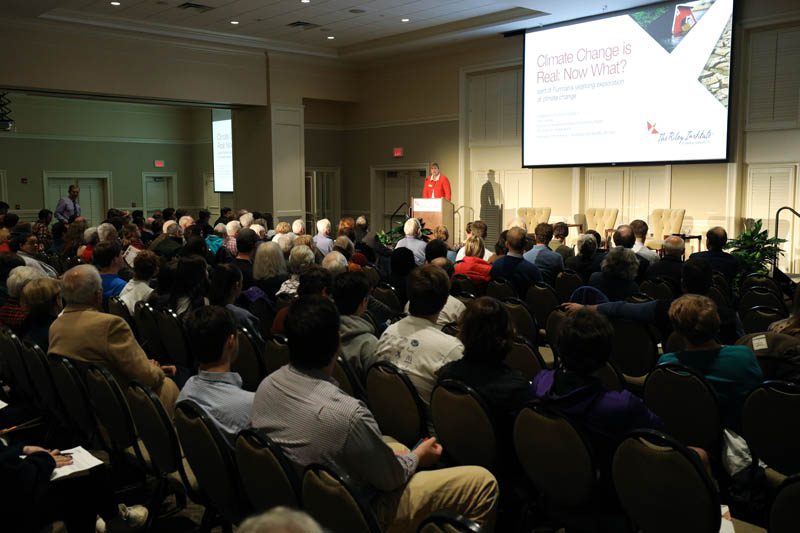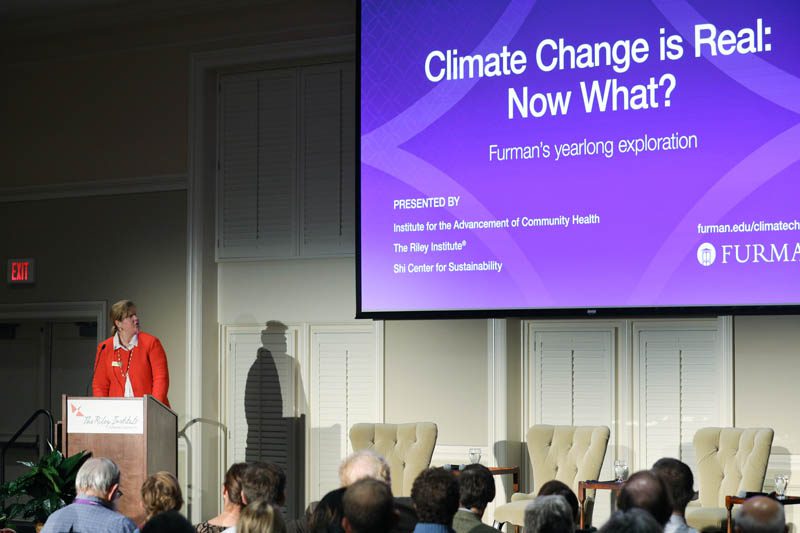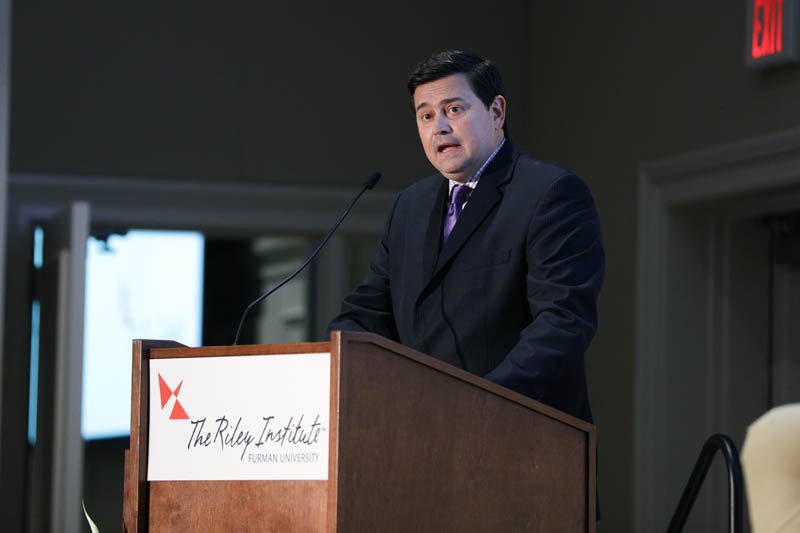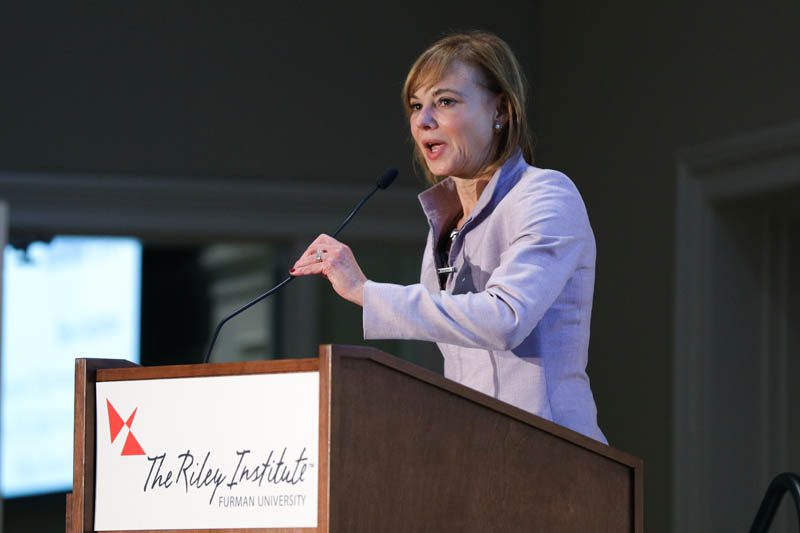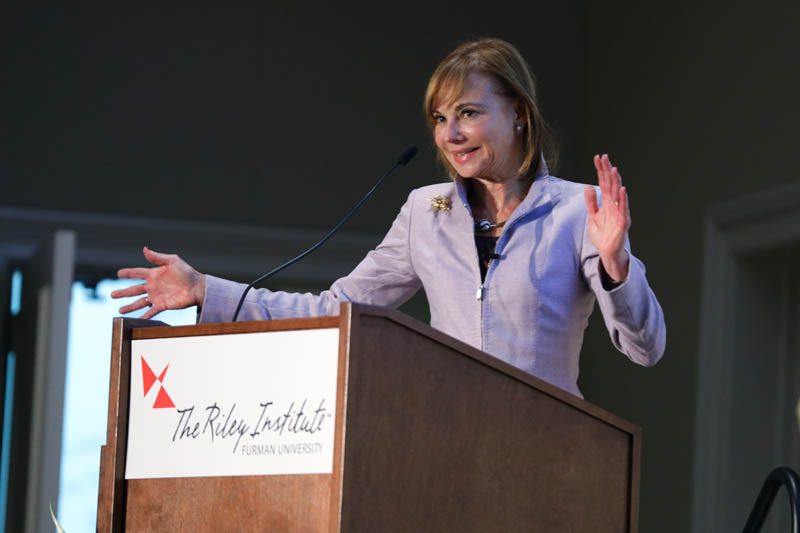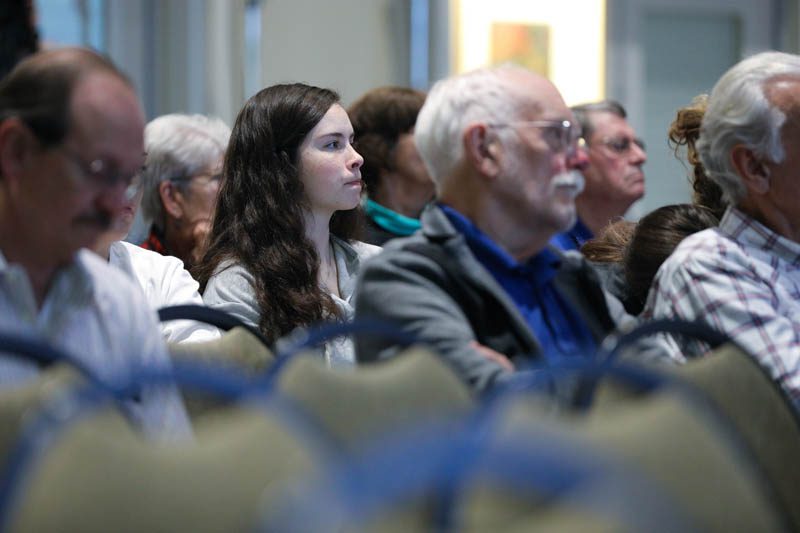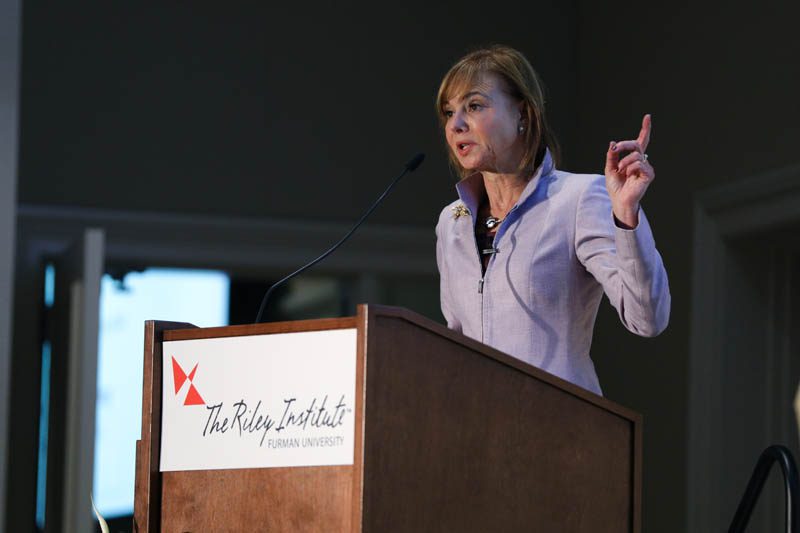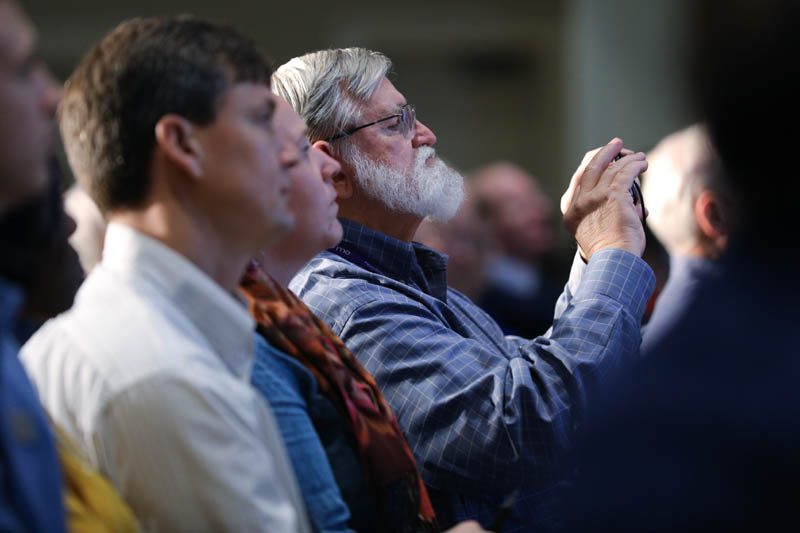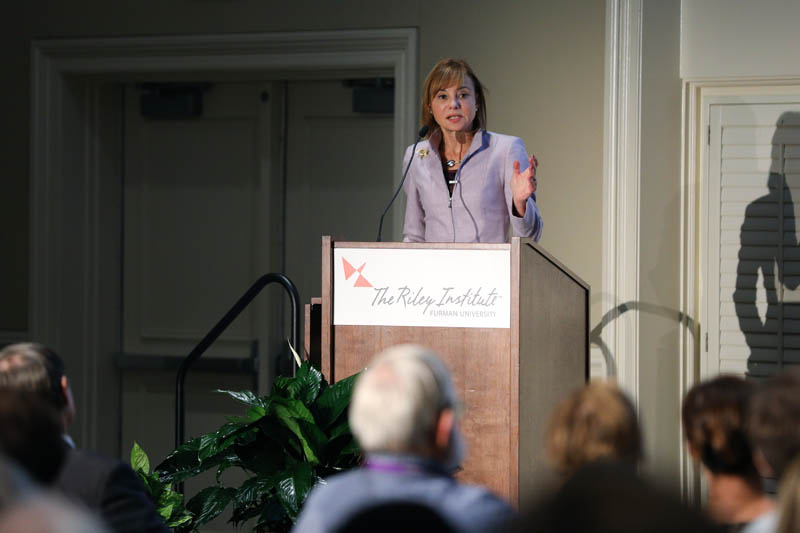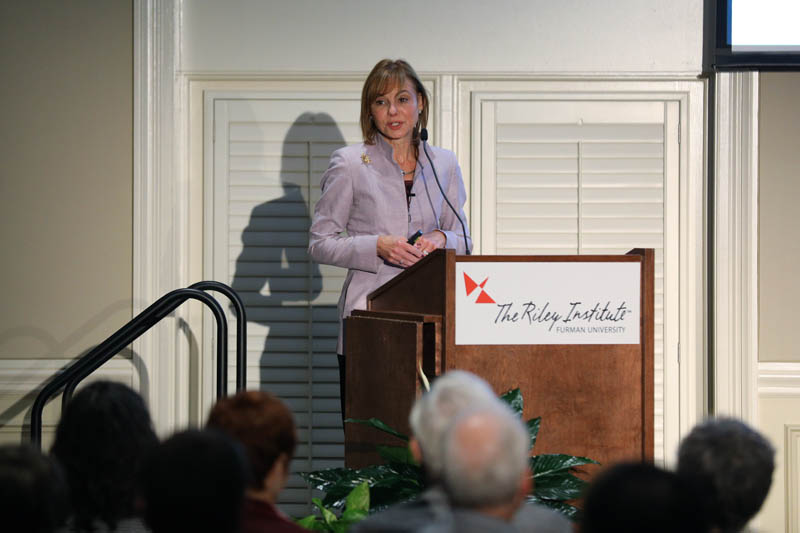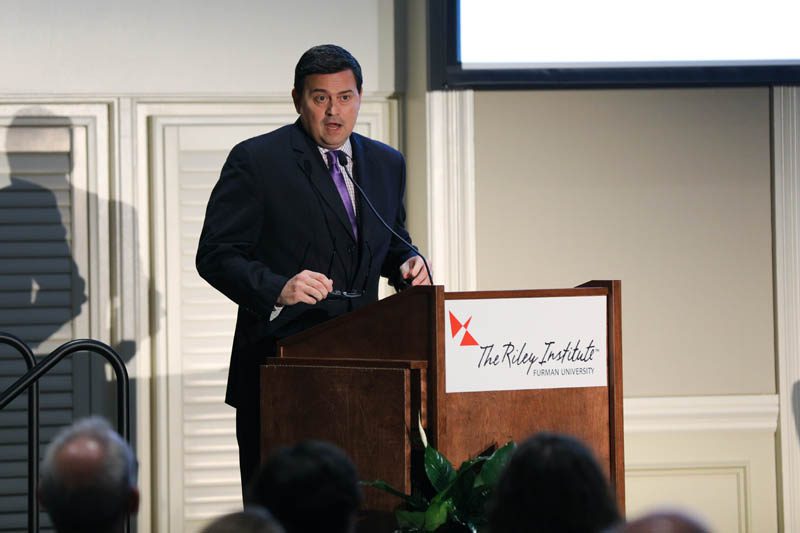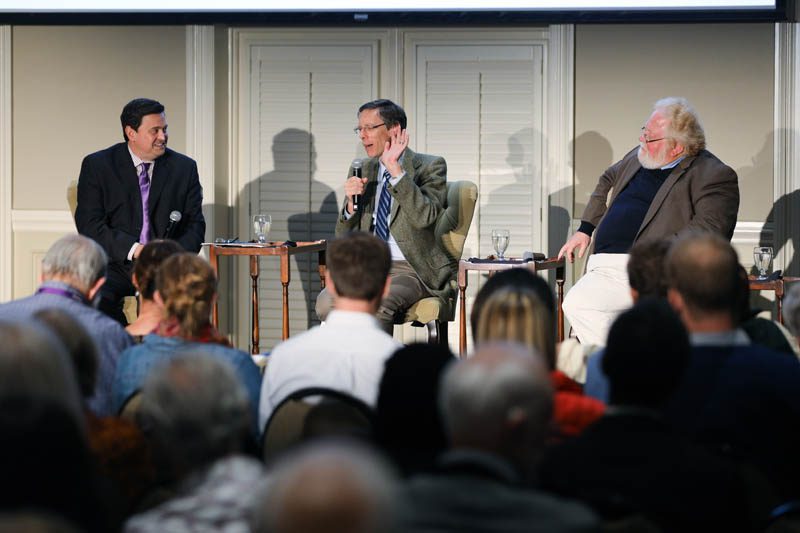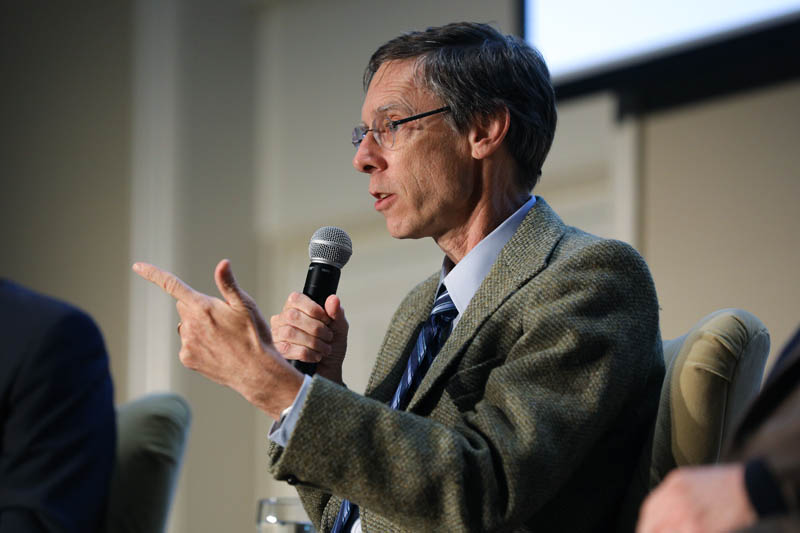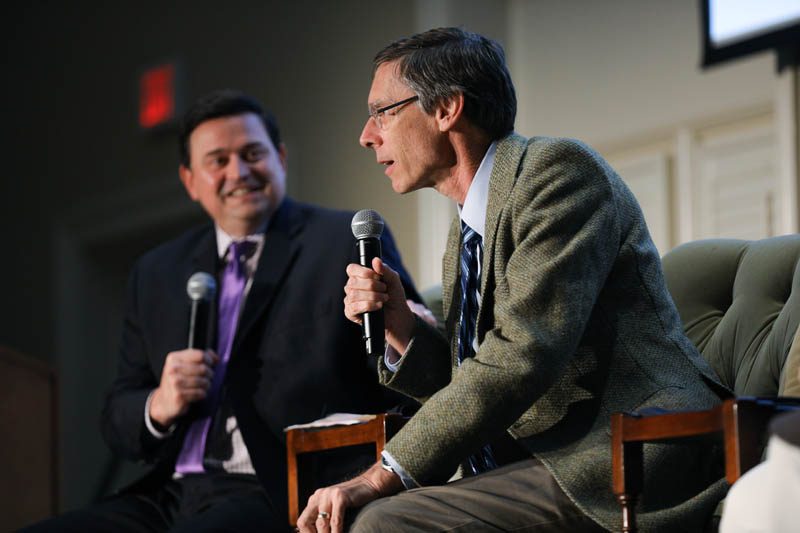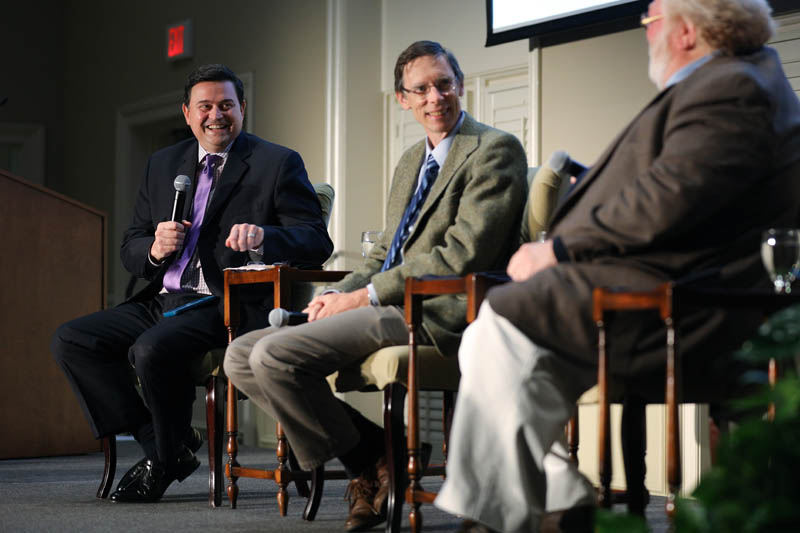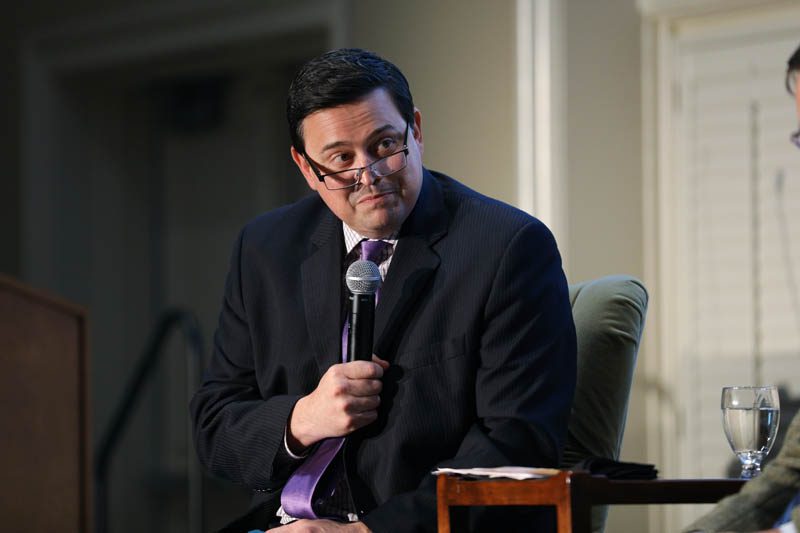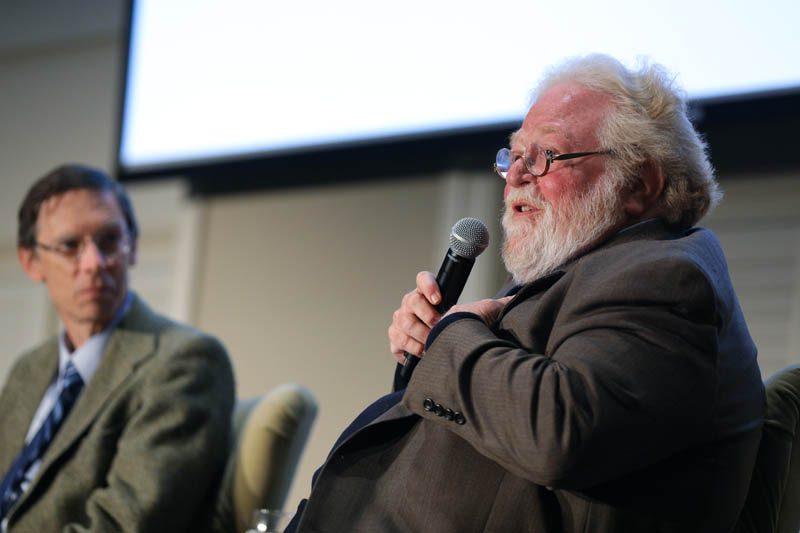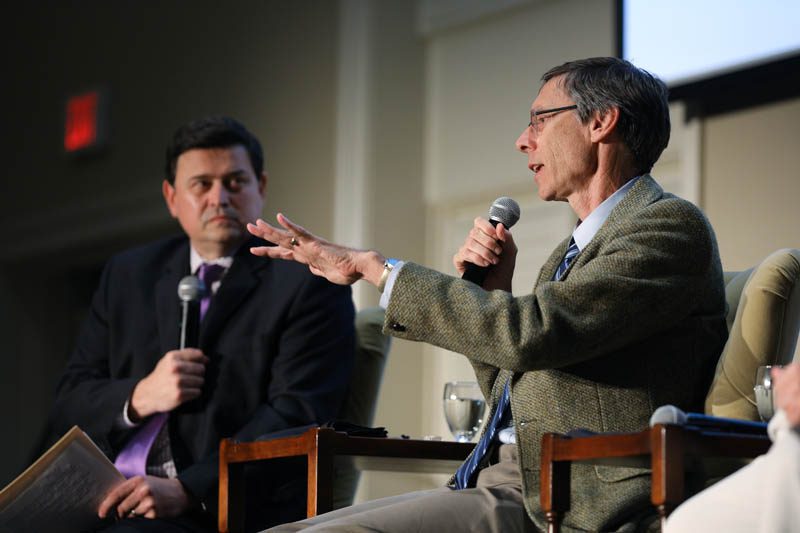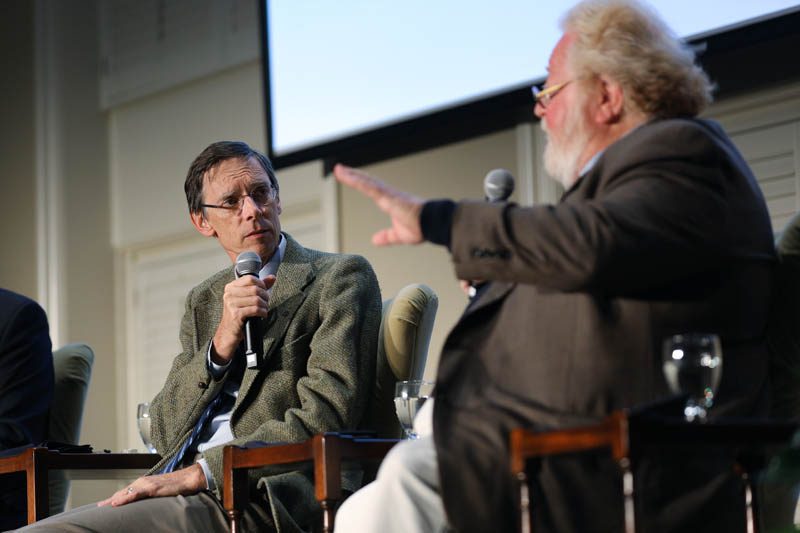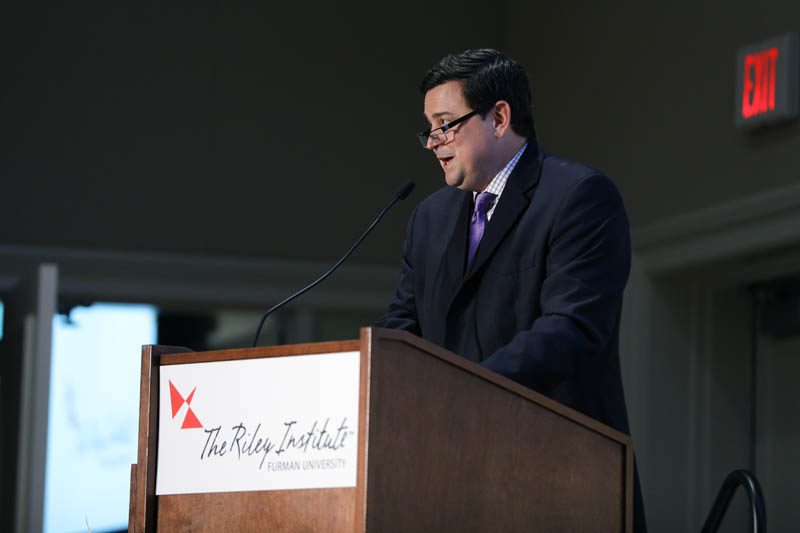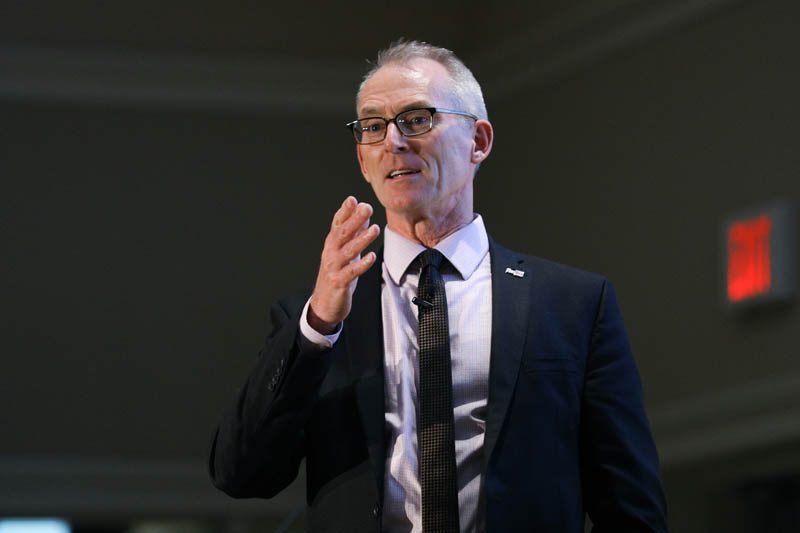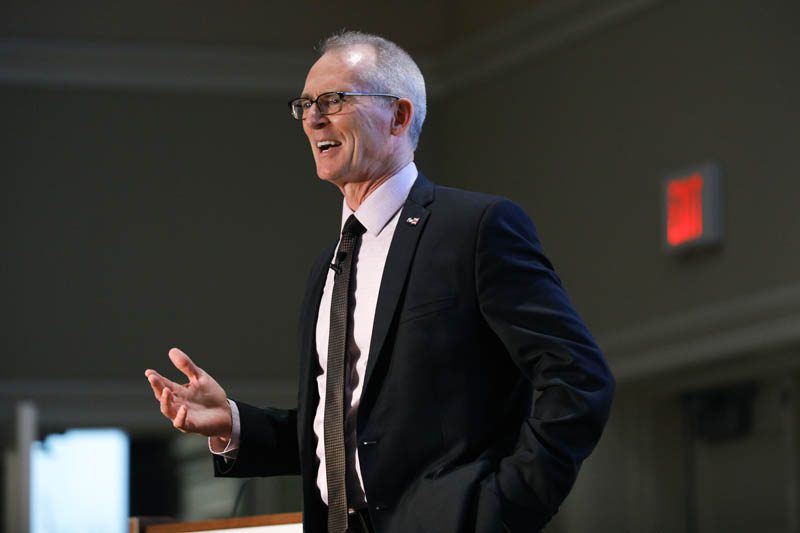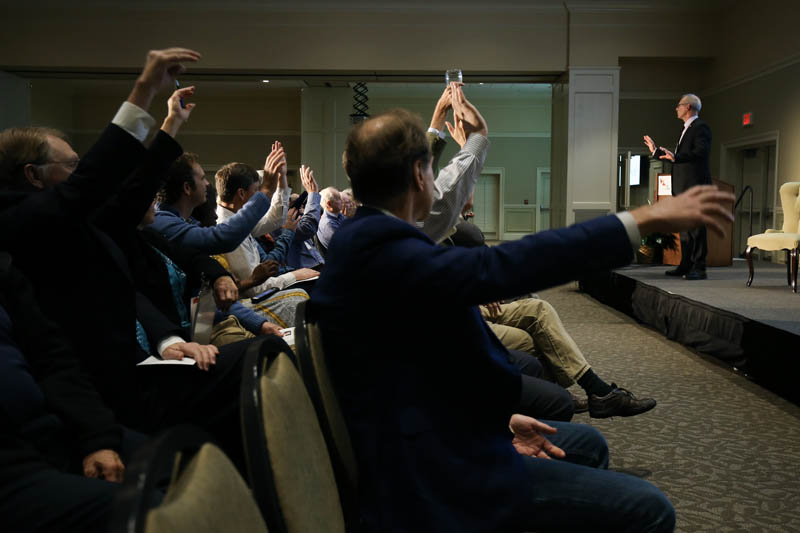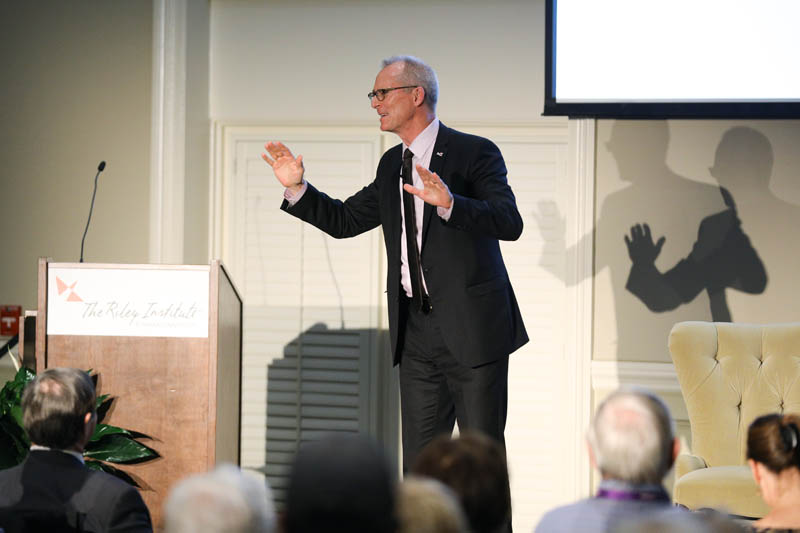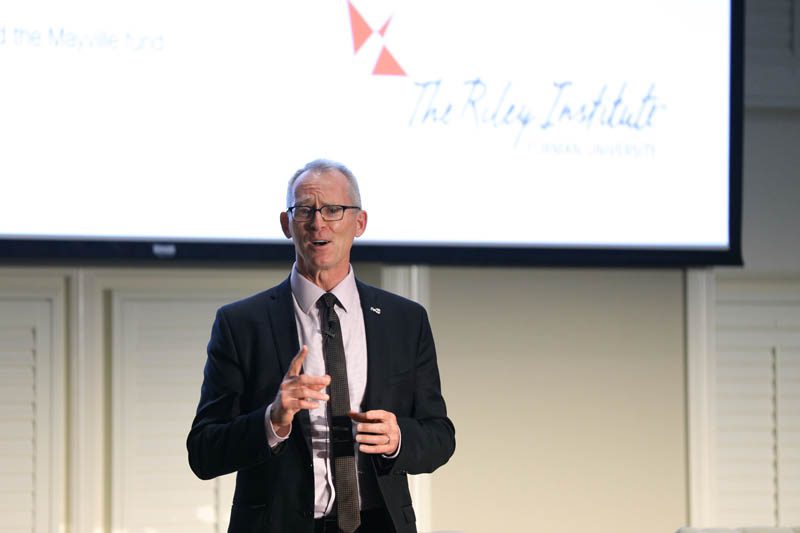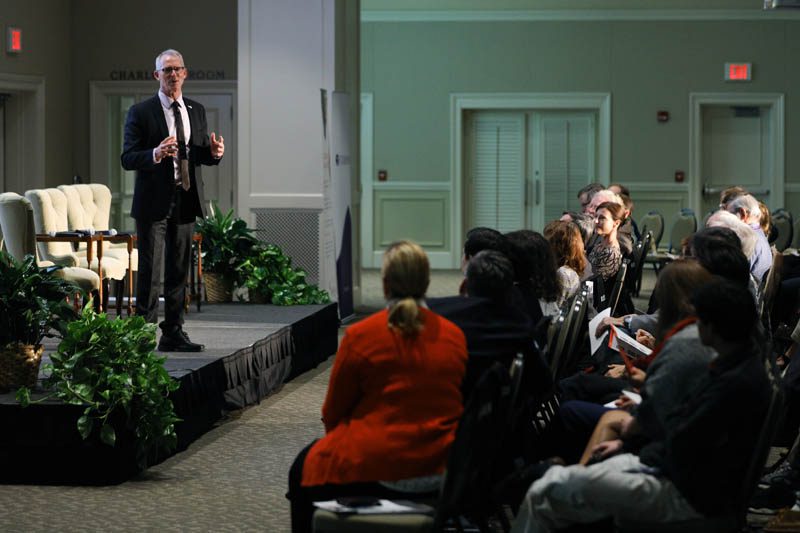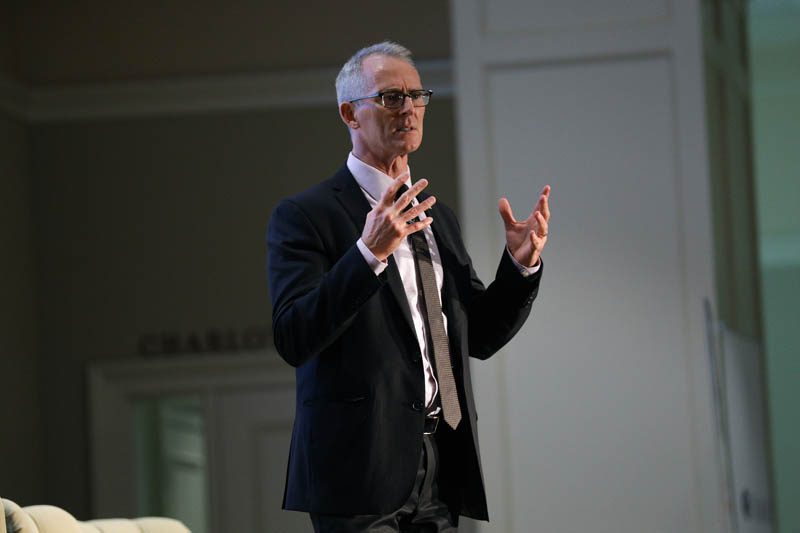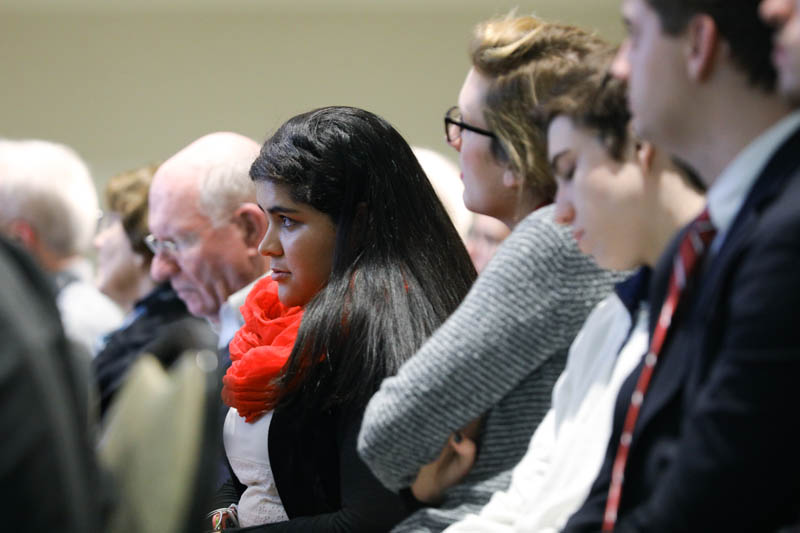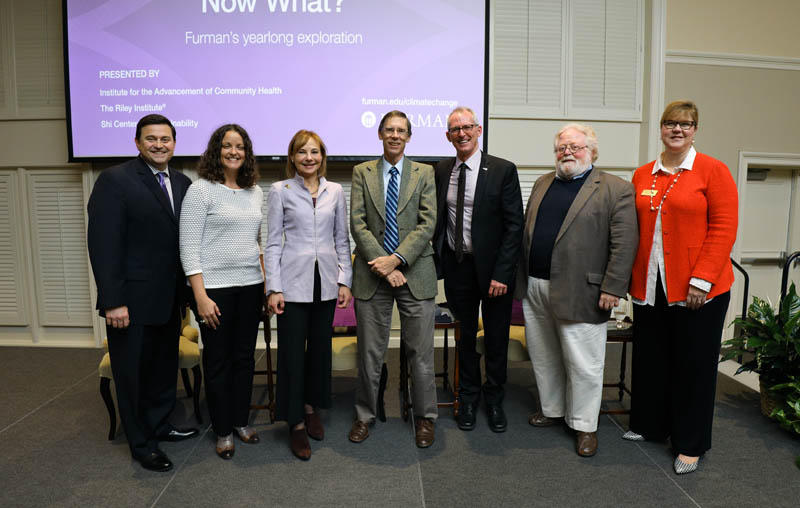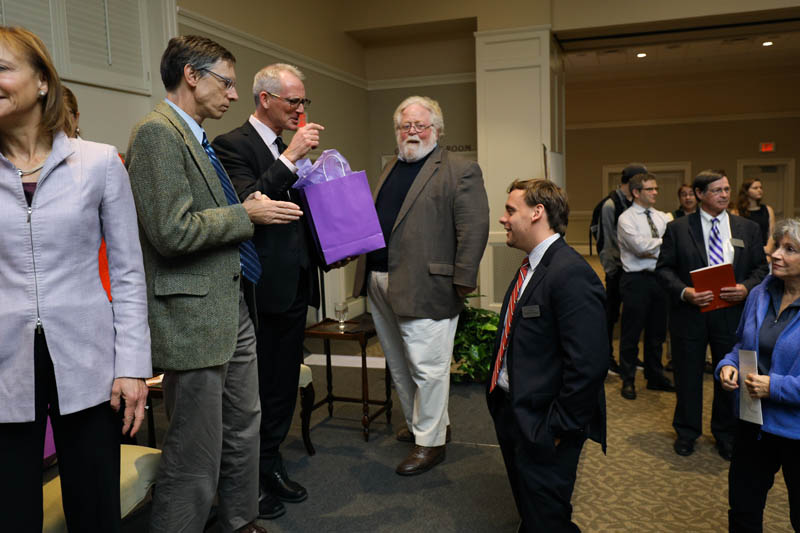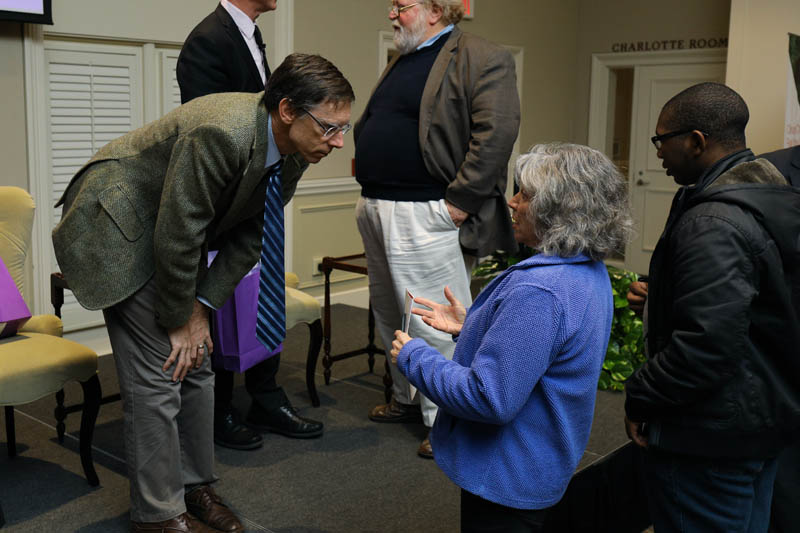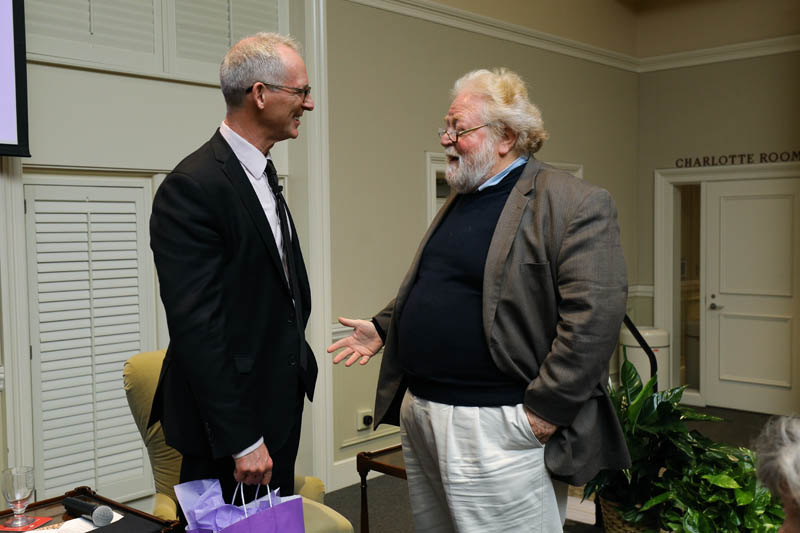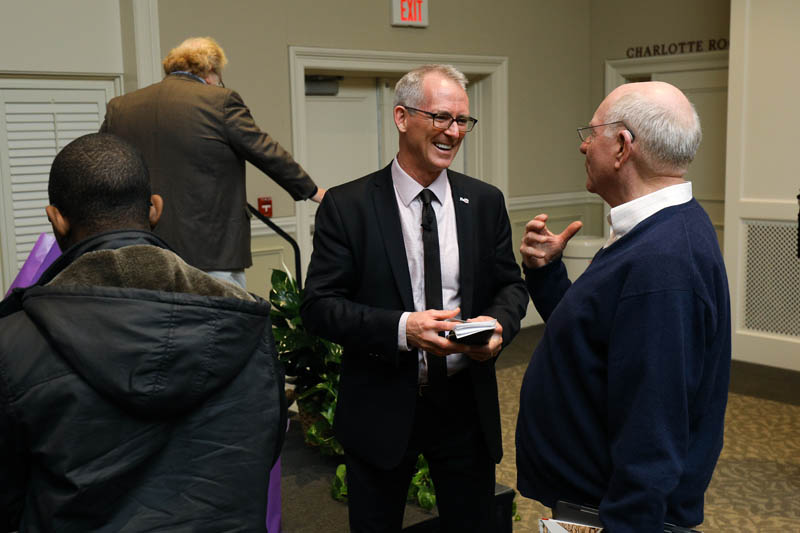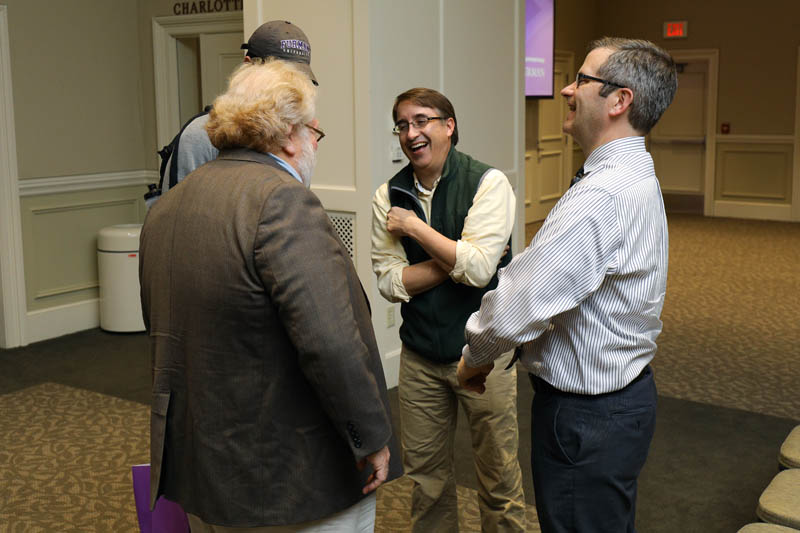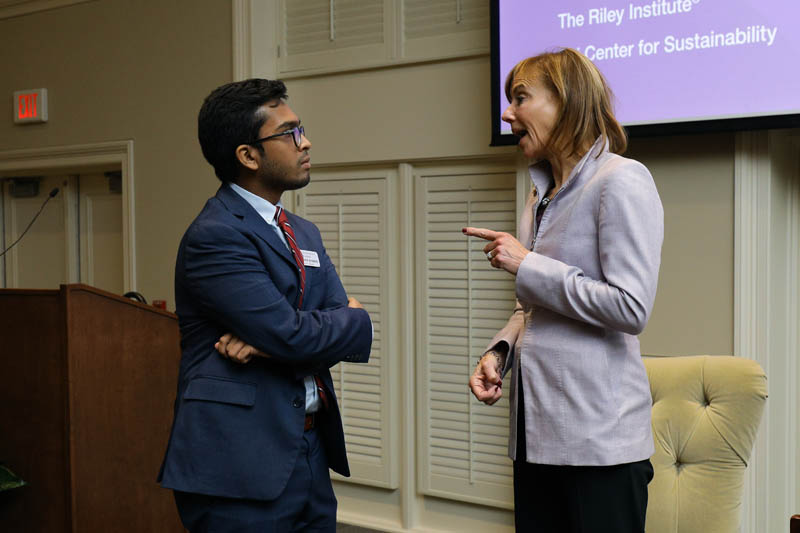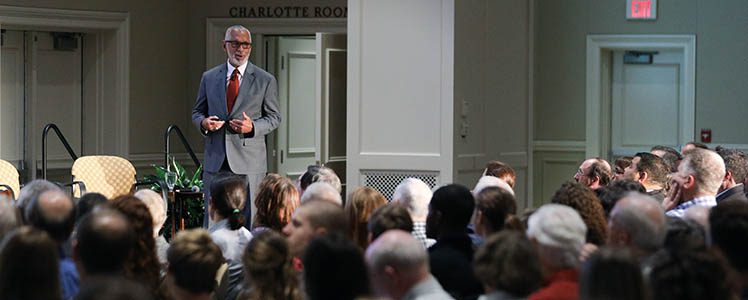
National Conferences
Climate Change is Real: Now What?
Shaw Hall, Younts Conference Center
November 8-9, 2017
Presented by Furman University’s Riley Institute, Shi Center for Sustainability, and Institute for the Advancement of Community Health with support from the A.J. Head fund. This national conference is part of Furman’s yearlong exploration of climate change.
The scientific consensus is overwhelming that human-caused climate change is real.
Now we ask: What does that mean for people’s health and livelihoods, for cities and homes, for ecological systems and even for our nation’s security? And, what can we do?
Thanks for joining us November 8 and 9 as we explored the current and future impact of climate change and concrete ways we can work together to solve this crisis and save the planet.
Series was moderated by Mark Quinn, former longtime broadcast journalist
November 8 7:00 – 8:30 p.m.
Keynote address: A Global Perspective on Earth’s Climate
Charles Bolden (bio), former astronaut and head of NASA
“Every other breath: Hidden stories of climate change” A look at The Post and Courier’s award-nominated series
Tony Bartelme (bio), Post and Courier special projects reporter
Is Climate Change Making Us Sicker?
Allison Crimmins (bio), climate scientist and lead author of interagency study on impact of climate change on health
A Conversation with Dana Beach (bio), executive director and founder, South Carolina Coastal Conservation League, Tony Bartelme, Charles Bolden and Allison Crimmins hosted by Mark Quinn
November 9 7:00 – 8:30 p.m.
Opening address: At Risk: Our Nation’s Security
Sherri Goodman (bio), former deputy undersecretary of defense, and senior advisor, The Center for Climate and Security
What Cities Can Do: A conversation with two coastal mayors
Phil Stoddard, PhD. (bio), mayor, South Miami, and professor of biology, Florida International University
Billy Keyserling (bio), mayor, Beaufort
Closing address: Can Free Enterprise Solve Climate Change?
Bob Inglis (bio), former U.S. Congressman and founder and CEO, RepublicEn.org
Press Coverage
Keynote Speakers:
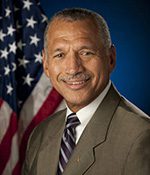

Born in Columbia, S.C., Bolden graduated from C. A. Johnson High School in 1964 and received an appointment to the U.S. Naval Academy. He earned a Bachelor of Science degree in electrical science in 1968 and was commissioned as a second lieutenant in the Marine Corps. After completing flight training in 1970, he became a Naval Aviator. Bolden flew more than 100 combat missions in North and South Vietnam, Laos, and Cambodia, while stationed in Namphong, Thailand between 1972 – 1973. Bolden earned a Master of Science degree in systems management from the University of Southern California in 1977. He was selected as an astronaut candidate in 1980 and returned to the Marine Corps after his final shuttle flight in 1994. He was inducted into the U.S. Astronaut Hall of Fame in 2006.
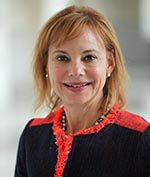

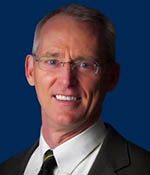

In 2011, Inglis went full-time into promoting free enterprise action on climate change and launched the Energy and Enterprise Initiative (“E&EI”) at George Mason University in July 2012. E&EI focuses on the power of accountable free enterprise, believing that climate change can be solved by eliminating all subsidies, including the implicit subsidy of the lack of accountability for emissions. E&EI supports an online community of energy optimists and climate realists at republicEn.org.
For his work on climate change Inglis was given the 2015 John F. Kennedy Profile in Courage Award. Inglis was a Resident Fellow at Harvard University’s Institute of Politics in 2011, a Visiting Energy Fellow at Duke University’s Nicholas School of the Environment in 2012, and a Resident Fellow at the University of Chicago’s Institute of Politics in 2014.
Speakers and Panelists
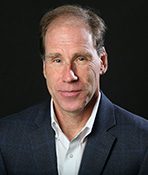

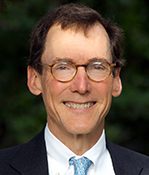



Allison Crimmins was the lead author and lead coordinator of the U.S. Global Change Research Program’s assessment on climate change and human health. She is an environmental scientist in EPA’s Office of Air and Radiation, Climate Change Division, and specializes in climate change risks and impacts. In addition to her work on climate change and human health, Allison is a co-lead on EPA’s climate impacts and risk analysis project, which quantifies economic benefits of global mitigation to the United States. She is also an author on EPA’s climate change indicators project. Prior to joining EPA, she worked at Massachusetts Institute of Technology’s Joint Program on the Science and Policy of Global Change. She has a Master of Science in oceanography from San Francisco State University and Master in Public Policy from the Harvard Kennedy School.
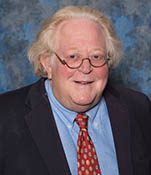

Billy Keyserling is a Beaufort native who graduated from Brandeis University (BS, Magna Cum Laude) and Boston University (MS). He worked in Washington, DC for almost 16 years providing administrative and legislative duties for members of the U.S. Congress, coordinating an international human rights initiative and working as a public affairs consultant.
He returned to Beaufort in 1989. Keyserling served two terms in the S.C. House of Representatives where he was Vice Chair of the Joint Legislative Committee on Energy and served as Chairman of the Beaufort County Legislative Delegation. After deciding against seeking a third term in the legislature, Keyserling was elected to Beaufort City Council in 2000 and served one term. He became Mayor in 2008 and was re-elected in 2012 and 2016. Keyserling serves on the boards of the Municipal Association of South Carolina and the South Carolina Humanities Council.
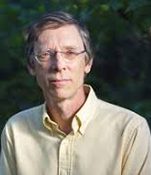

Series moderator
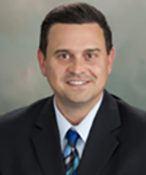

To return to the Climate Change homepage, click here.
